CBF field personnel
Matt and Michelle Norman
bear witness to Jesus in Spain
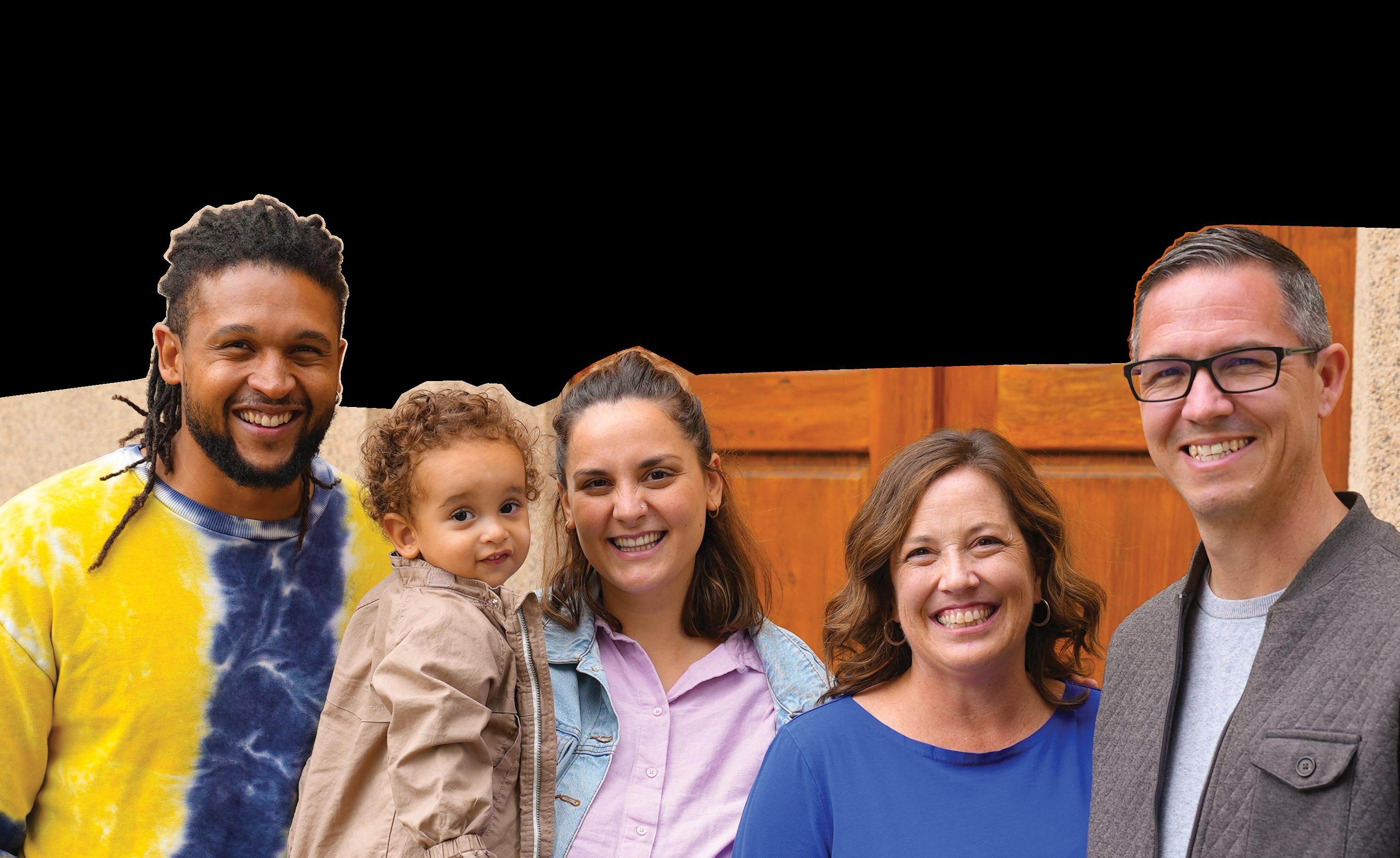

General Assembly
2023 report inside!

HOLY


CBF field personnel
Matt and Michelle Norman
bear witness to Jesus in Spain


General Assembly
2023 report inside!

HOLY

The theme of this year’s campaign for the Offering for Global Missions is “Equipping with Every Good Thing.” But this is much more than a theme. It is a description of a powerful truth. God is equipping our Fellowship with everything we need to participate in the mission of Jesus Christ around the world and in our communities.
The Holy Spirit is equipping us with the gift of remarkable field personnel who serve in the United States and 19 nations globally. At last June’s General Assembly, we commissioned two new field personnel who will serve in Cyprus as well as new Global Service Corps personnel, who serve alongside career field personnel here in the United States. They join an amazing group of women and men who have offered their lives to Christ’s mission. Every time you or your congregation makes a gift to the Offering for Global Missions, you participate in the Holy Spirit’s equipping because every dollar contributed to that offering supports the presence and ministry of those field personnel. By giving, we equip.
We are being equipped through partnerships with the Global Church. In their ministries, field personnel nurture essential ministries with Baptist bodies, congregations of different denominations and faith-related nonprofits. These relationships are reciprocal in that our field personnel further strengthen the ways Christ is at work in these denominational bodies and congregations, but also our Fellowship is equipped because of the ways Christ teaches and challenges us through these holy friendships.
Our Fellowship is being equipped with every good thing as we participate in Jesus’ mission because more of our congregations have become Encourager Churches for our field personnel. Through those focused relationships, our congregations become more involved in ministry in a different part of the nation or world. These Encourager Churches offer support to our field personnel, participate directly in their ministries and build relationships with Christians and community leaders. Through those relationships, the ministries of our field personnel are further equipped
PAUL BAXLEY is Executive Coordinator of the Cooperative Baptist Fellowship.

But those relationships also equip congregations for more faithful ministry in their own communities. As I travel, I hear powerful testimonies of how congregations have found greater clarity about their own missional calling in their communities through participating in Jesus’ mission in other places. Our field personnel become instruments of the Holy Spirit’s equipping for these congregations, as do the other relationships our field personnel bring to those congregations.
I am keenly aware, as I have the privilege of being in many congregations across our Fellowship, of the unique roles our congregations are playing in Jesus’ mission. Our congregations are convenors of ecumenical ministry in their communities even as they are encouragers of vital nonprofit ministries in their communities. Your congregation and your fellow CBF partner congregations are finding ways to offer our gifts, resources and facilities toward a more complete participation in Jesus’ mission of bringing good news to the poor, sight to the blind, freedom to the oppressed. We are following Jesus, experiencing his relentless love and sharing it in our communities and all around the world because we are finding more and more ways to use the gifts God has given us to equip us for every good thing.
Years ago, I read Sam Wells’ remarkable book God’s Companions His work establishes the biblical truth that the Holy Spirit always gives the church more than we need to do what God wants. That’s another way of expressing the conviction we read in Hebrews 13, namely that the God of peace is equipping us with every good thing to do God’s will.
We are being equipped. Let’s pray fervently, give generously and live even more faithfully so that we can participate in the miracle of the mission of Jesus in our communities and around the world!
Fellowship! is published 4 times a year in September (Fall), December (Winter), March (Spring), June (Summer) by the Cooperative Baptist Fellowship Inc., 160 Clairemont Avenue, Suite 500, Decatur, GA 30030. Periodicals postage paid at Decatur, GA, and additional offices. USPS #015-625.
Executive Coordinator Paul Baxley Associate Coordinatorfor Identity & Communications Jeff Huett Editor Aaron Weaver Associate Editor Lauren Lamb Graphic Designer Jeff LangfordE-Mail fellowship@cbf.net
Phone
(770) 220-1600
Postmaster: Send address changes to: Fellowship! Cooperative Baptist Fellowship 160 Clairemont Avenue, Suite 500 Decatur, GA 30030
Cooperative Baptists gather in Atlanta for 2023 General Assembly
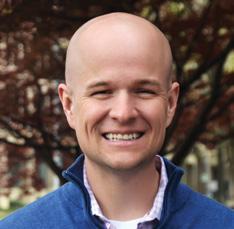 By Carrie Harris
By Carrie Harris
16
Matt and Michelle Norman bear witness to Jesus in secular Catalonia
By Marv KnoxEquipping immigrant mothers with community and stability in Catalonia
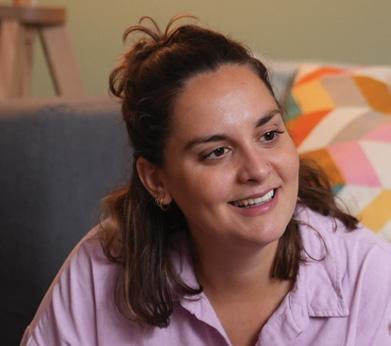 By Grayson Hester
By Grayson Hester
22
HIGHER, DEEPER, FARTHER, WIDER
Young adults come together at Selah Vie
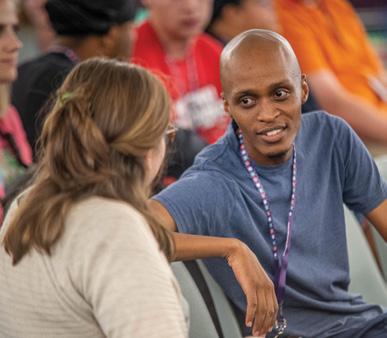 By Meg Rooney
By Meg Rooney
26
SPACE FOR LEASE
How Willow Meadows Baptist Church proactively marketed their facility in Houston, Texas
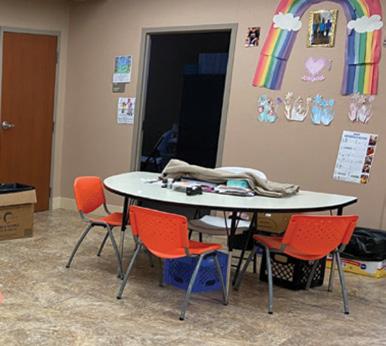
28 ADVOCACY AND ACTION FOR THE PEOPLE OF JESUS
Agustín Quiles unites Latino Christians to confront injustice in Florida
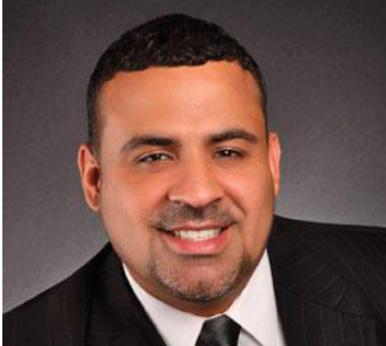
 By Kristen Thomason
By Kristen Thomason
30
I am excited to share with you the Fall 2023 issue of fellowship! magazine, introducing the Offering for Global Missions’ 2023-2024 theme Equipping with Every Good Thing. In the pages that follow, you’ll read about the impactful, equipping ministry of CBF field personnel Matt and Michelle Norman in Spain (pp. 16-21), and learn about Agustin Quiles and his trailblazing ministry for racial justice (pp. 28-31). Join us on a visual journey recapping the highlights of this summer’s General Assembly in Atlanta focused on pursuing Holy Ambition (pp. 6-13).
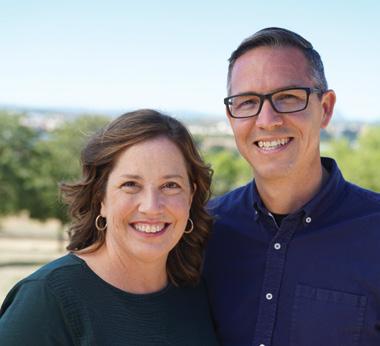
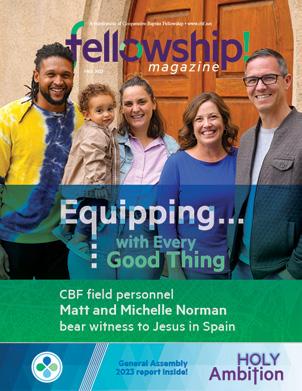
I also want to recognize two beloved CBF staff members, Becky Buice Hall and Devita Parnell. On August 28, CBF announced that First Baptist Church of Morrow, Ga., had called Devita Parnell as its first female pastor. For more than 16 years, Devita provided gifted leadership to the Fellowship creating resources, supporting congregations, and leading CBF’s Young Baptist Ecosystem. Several days later, CBF staff had the opportunity to lay hands on and bless Devita as she begins this new season of ministry.
On August 30, Becky Hall celebrated her 30th anniversary with CBF. Since 1993, Becky has faithfully served our Fellowship in several roles, currently as Associate Coordinator for Operations. CBF Executive Coordinator Paul Baxley and Human Resources Manager
Y ACCIÓN PARA EL PUEBLO DE JESÚS
Agustín Quiles une a cristianos latinos para enfrentar la injusticia en Florida
Por Kristen Thomason
LaToya Cross honored Becky at a recent CBF staff gathering in Decatur for her passionate dedication to staff, field personnel and the thriving of our Fellowship. “This is where my heart is,” Becky shared.

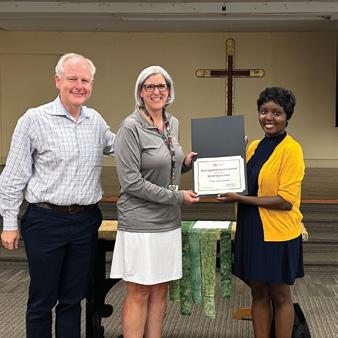
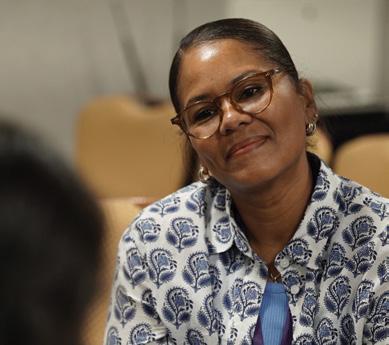
A new weekly curriculum that helps children explore the Good News of Jesus through stories, scripture and activities.
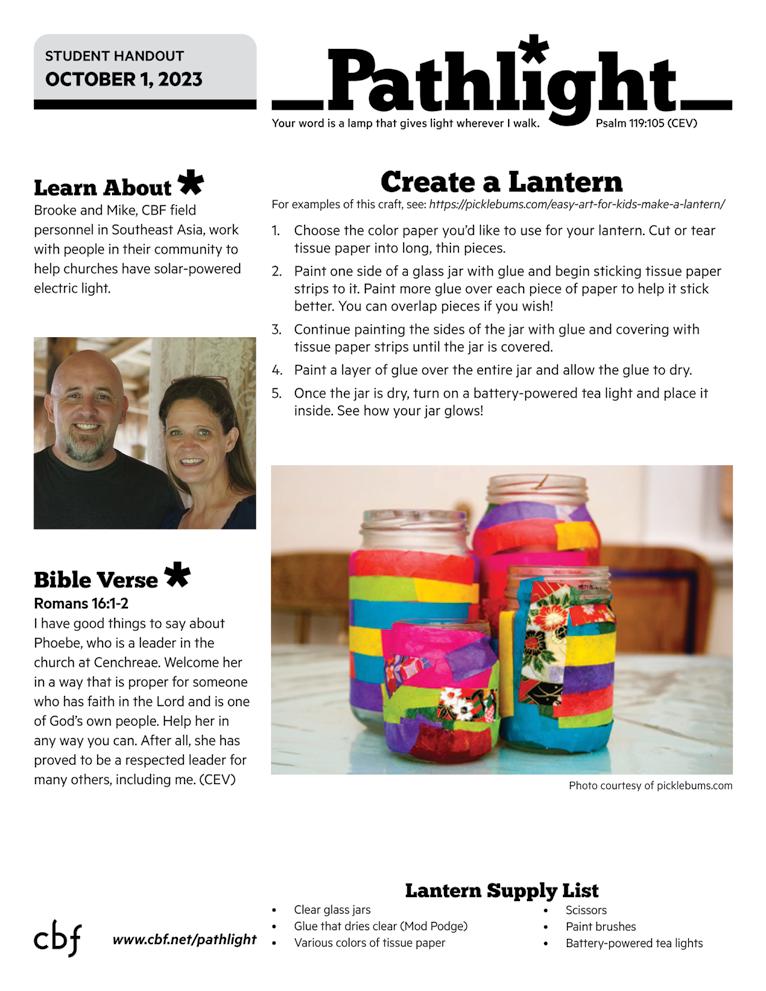
También en Español. Free downloads for teachers and students at www.cbf.net/pathlight

2023-24

For this year’s Prayers of the People, we invited writers to share with us about someone who has made a significant impact on their lives, a spiritual guide so to speak—one who has shaped their faith, their theology or their prayer life. As you will see, the offerings are wide and varied, ranging from friends and family members to mentors and colleagues, from the characters of Scripture to authors and theologians past and present.
To view, download or order a printed copy of Prayers of the People, visit www.cbf.net/pray.
Kat Kimmel (right), senior pastor of First Baptist Church, Memphis, Tenn., urged Cooperative Baptists to “provoke one another to love and do good deeds,” during the closing worship and commissioning service.
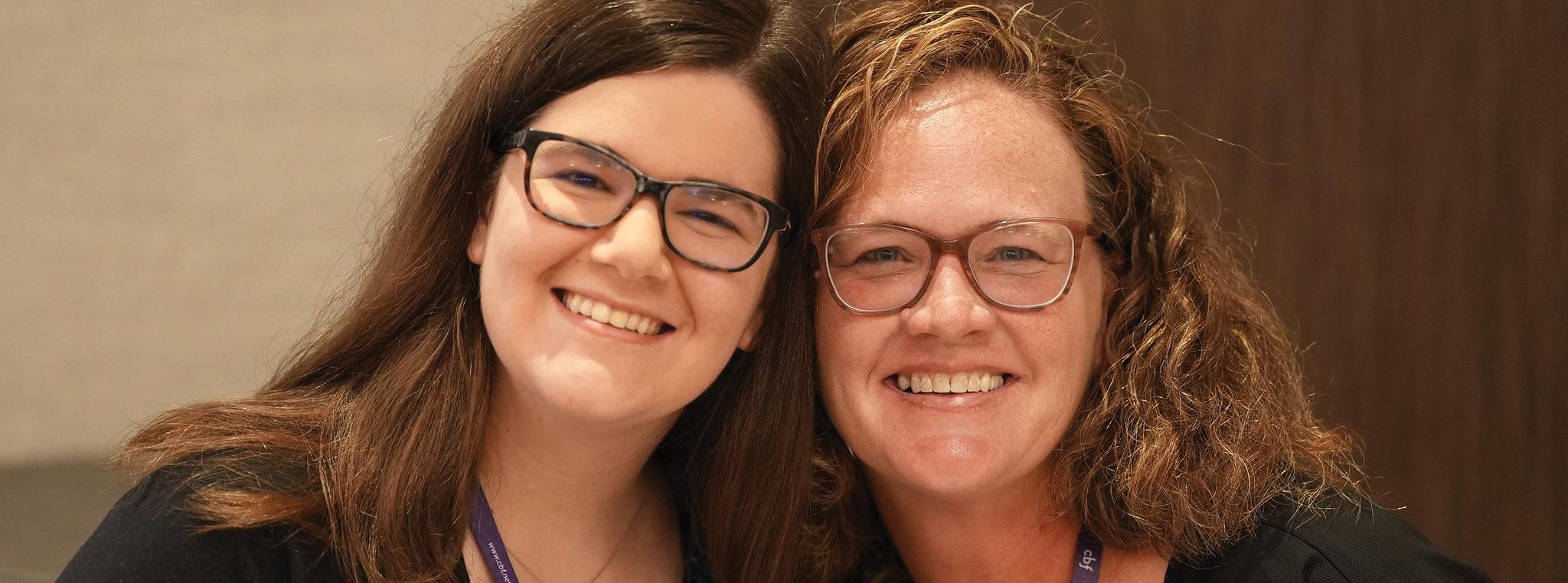
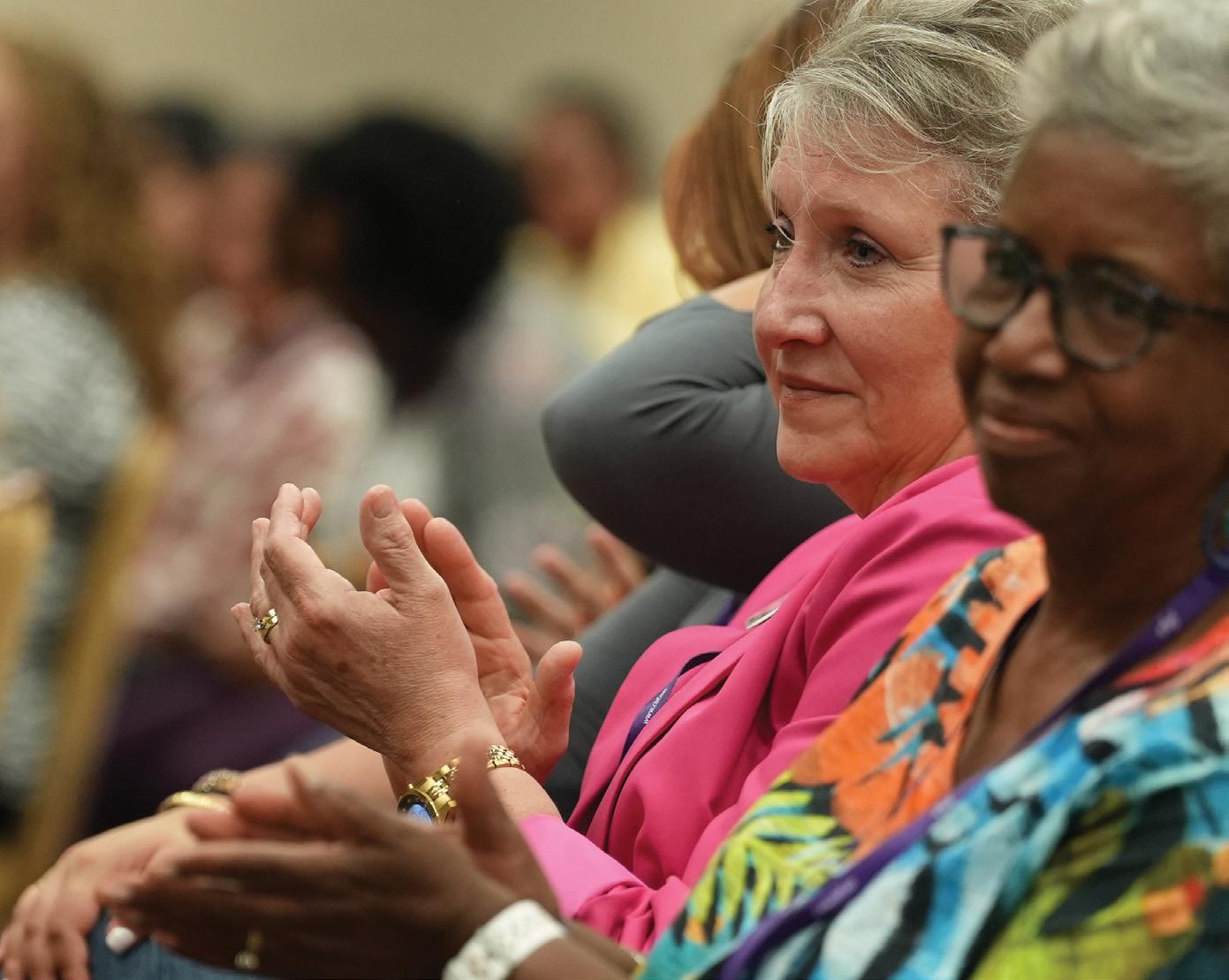
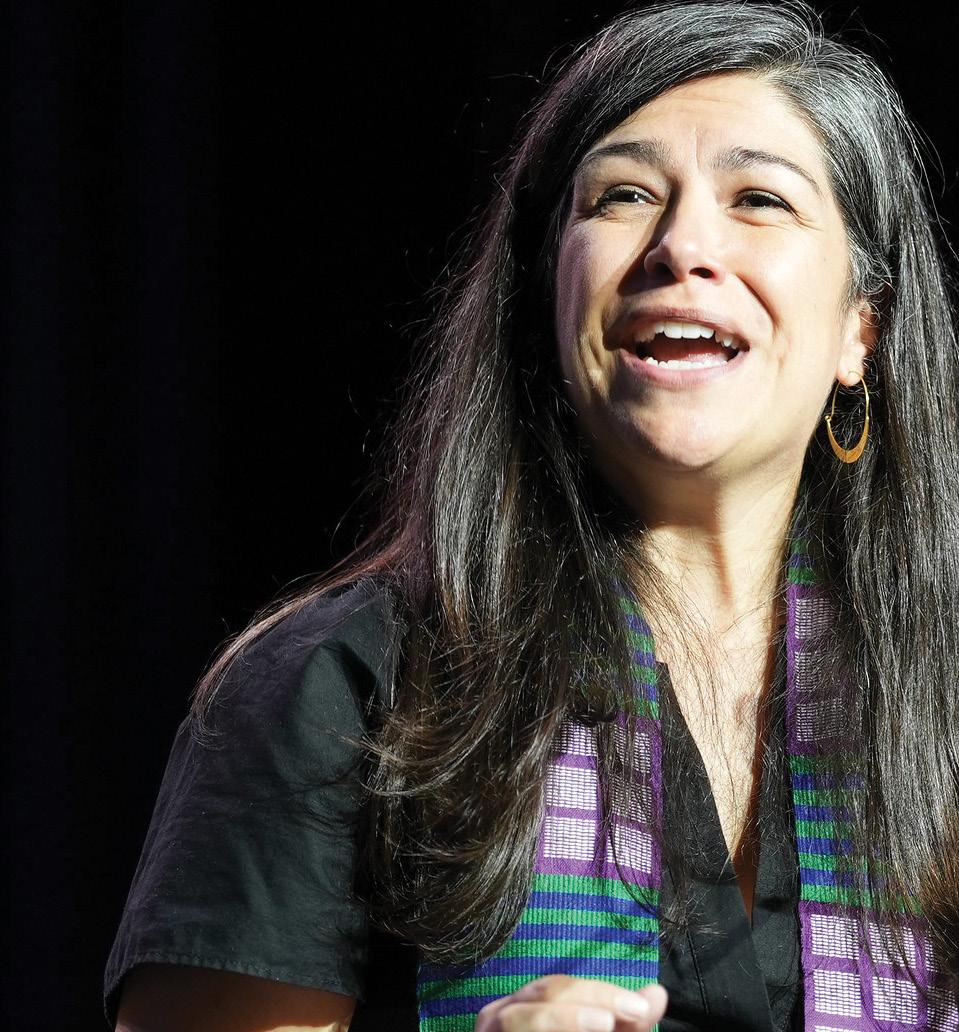
David Hull (below) became the CBF Moderator on Friday during the General Assembly, where he shared his hopes for the next year of service. “Community, faith and adventure. Those are my dreams for CBF. I look forward to making this pilgrimage together with you,” Hull said.
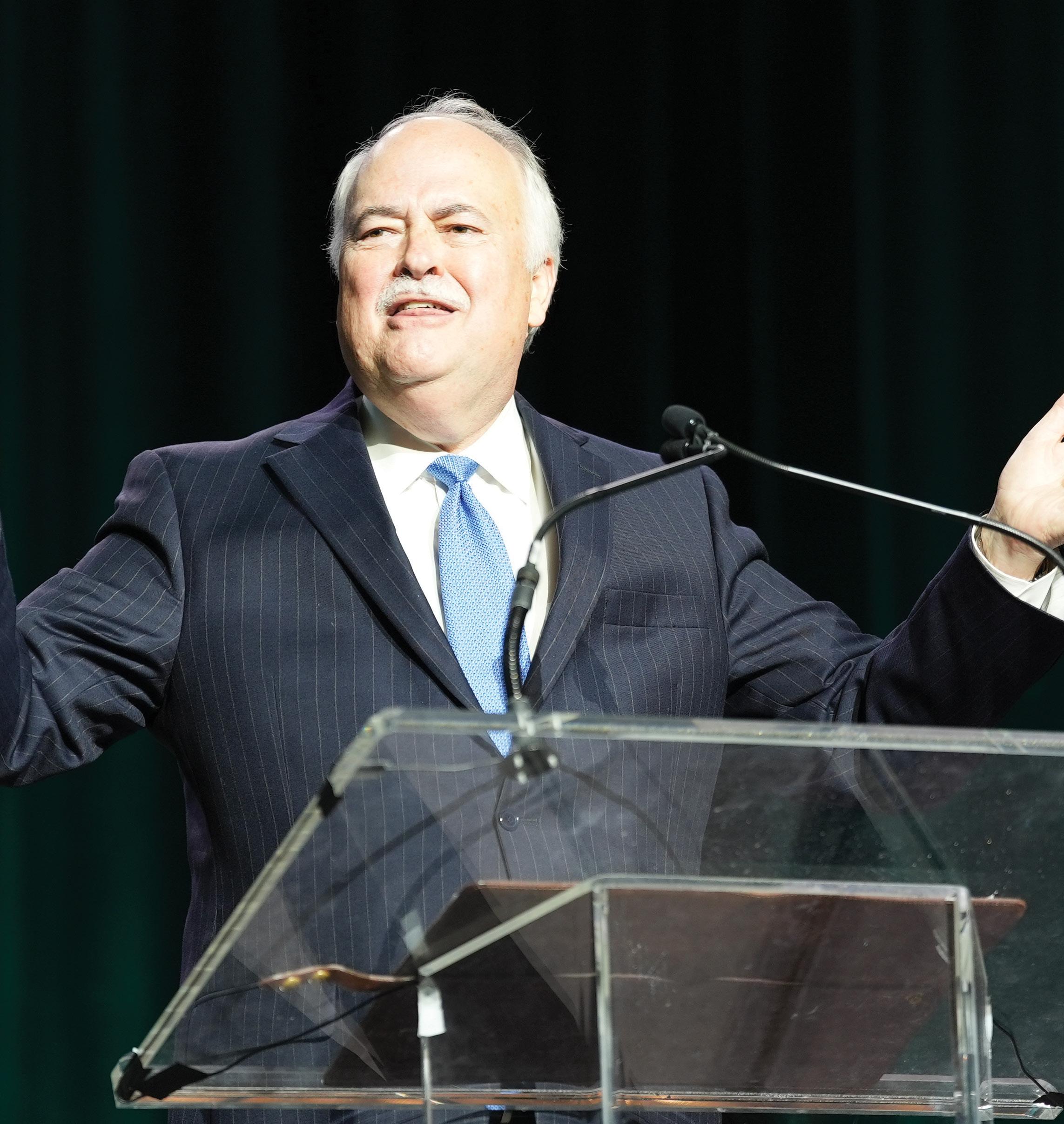
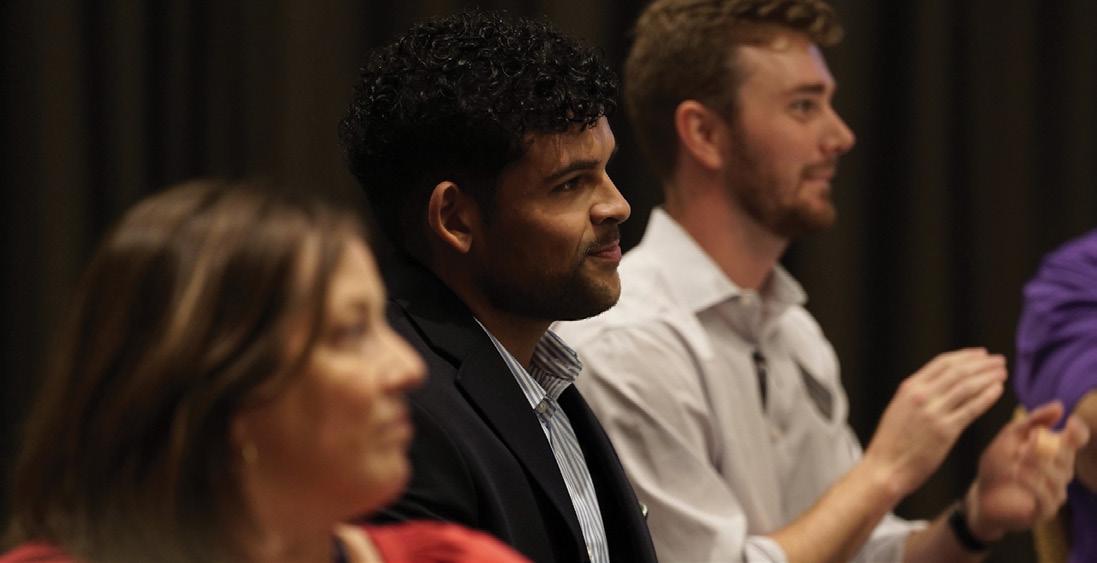
 by Carrie Harris
by Carrie Harris
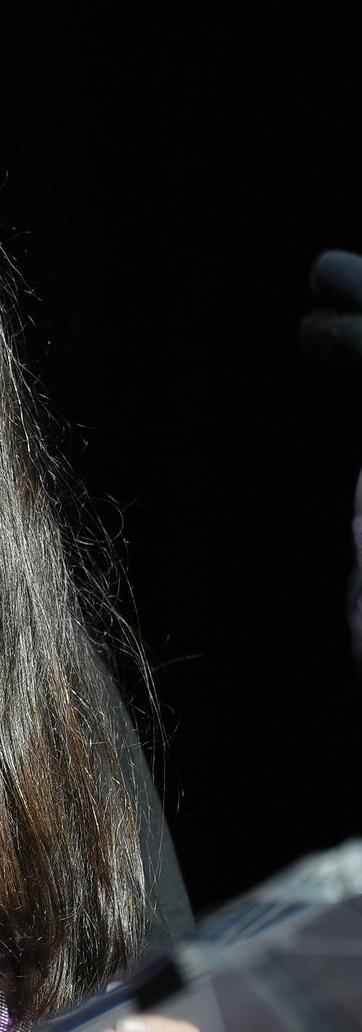
Let us hold unswervingly to the hope we profess, for he who promised is faithful. And let us consider how we may spur one another on toward love and good deeds, not giving up meeting together, as some are in the habit of doing, but encouraging one another—and all the more as you see the Day approaching.
Hebrews 10:23-25
This summer, nearly 1,500 Cooperative Baptists gathered in Atlanta to pursue Holy Ambition. Together, we were equipped to put our faith to action, were encouraged by friends and colleagues in ministry, and were challenged to come alongside God’s transforming work in the world.
Throughout the Assembly, attendees were challenged to consider a boldly ambitious way of being Baptist, reminded by CBF Executive Coordinator Paul Baxley that he believes that God’s ambition for the Cooperative Baptist Fellowship reflects the cooperation that lives in the heart of God.
“God is Trinity. God, in all of God’s work, is cooperating between the persons of the Trinity to do everything God does in the world,” Baxley said. “And that cooperating impulse, that cooperating identity becomes mission because the cooperating
love at the heart of God cannot be contained in God, but instead overflows into the world when God sends Jesus into the world and when God sends the church.”
This spirit of cooperation and love overflowing was present around tables in partner-sponsored meals, through dialogue in plenary sessions, in Learning Labs and network meetings, in the Gathering Place, worship and hallway conversations.
Cooperative Baptists came together to pursue Holy Ambition and said “yes” to being ambitious and “yes” to provoking one another toward ambitious love, good deeds and encouragement.
You can catch up on all the news, photos and videos from the Assembly at www.cbf.net/assembly2023, and we invite you to join us next year in Greensboro, N.C.!
Above: Assembly attendees gathered around tables throughout the week to fellowship, network with other Cooperative Baptists and have deep conversations. On Thursday morning, all attendees had the opportunity to dialogue around tables on the topic of women in ministry with the guidance of CBF and BWIM’s new resource, Equally Called.
Throughout the Assembly, participants engaged in conversation with each other and heard from compelling speakers, like author and historian Jemar Tisby (third from top) and CBF field personnel Elket Rodrĺguez (left) in Learning Labs and meal events.

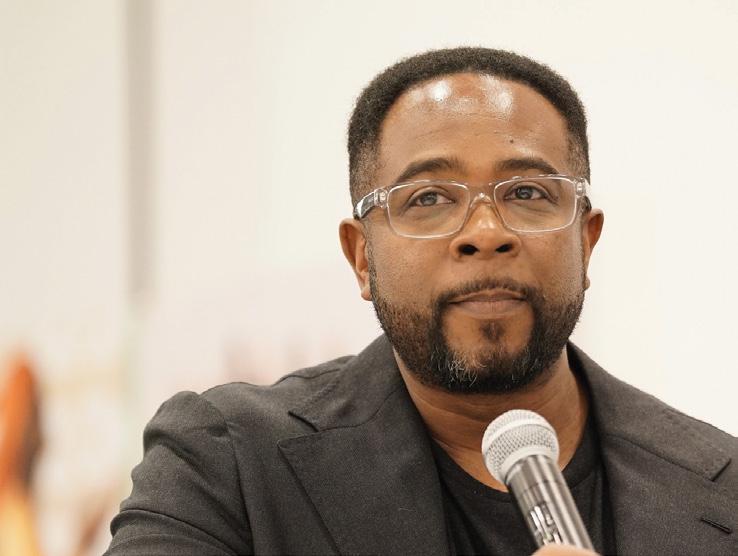
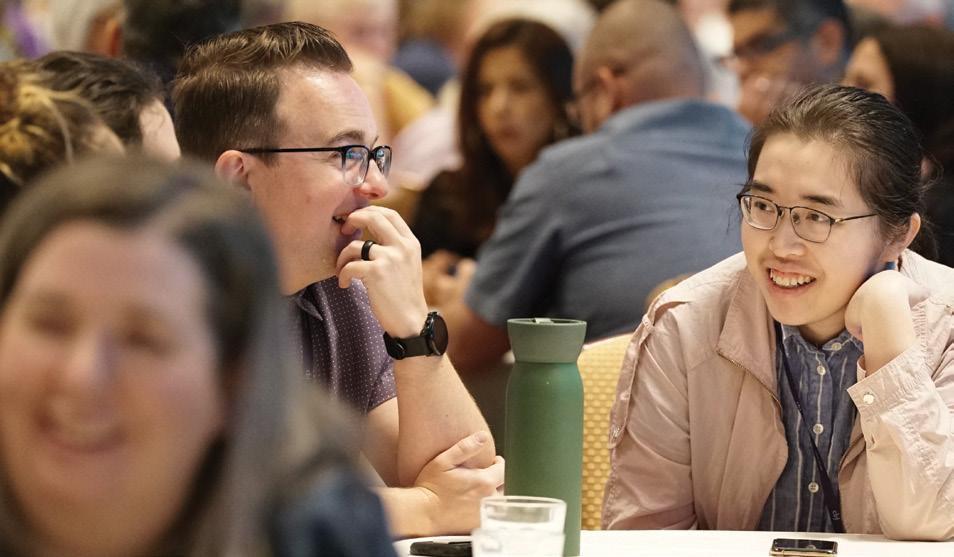
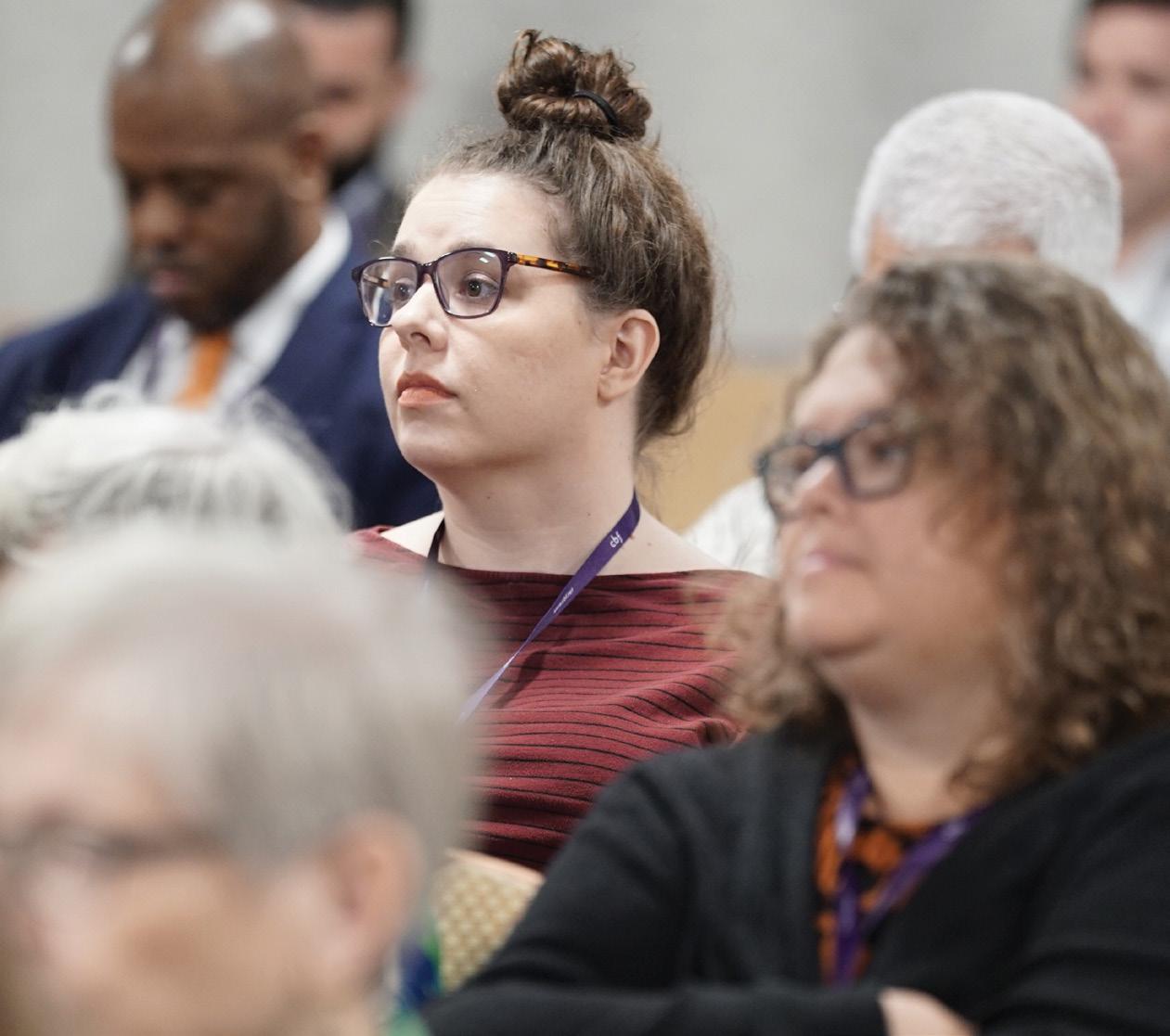
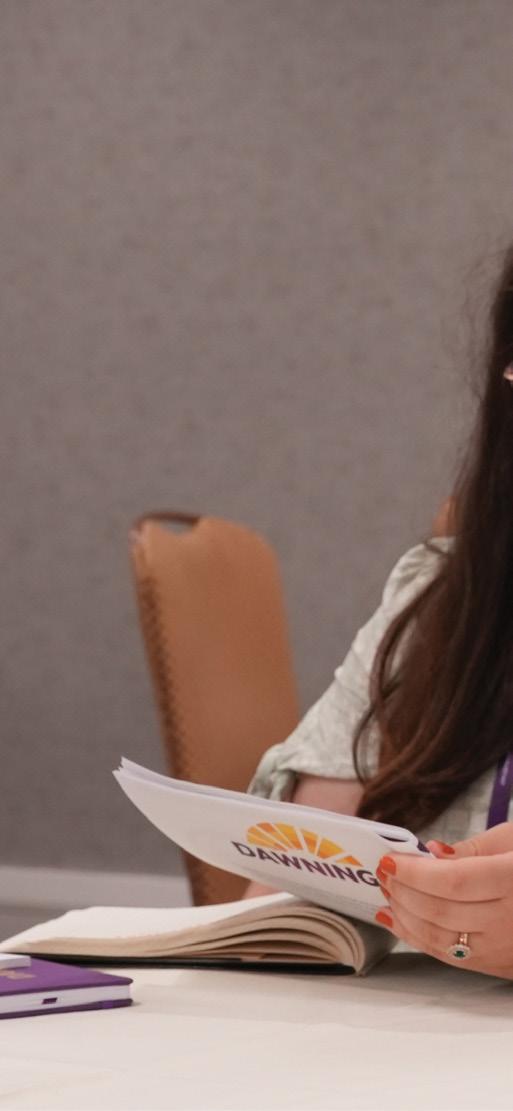
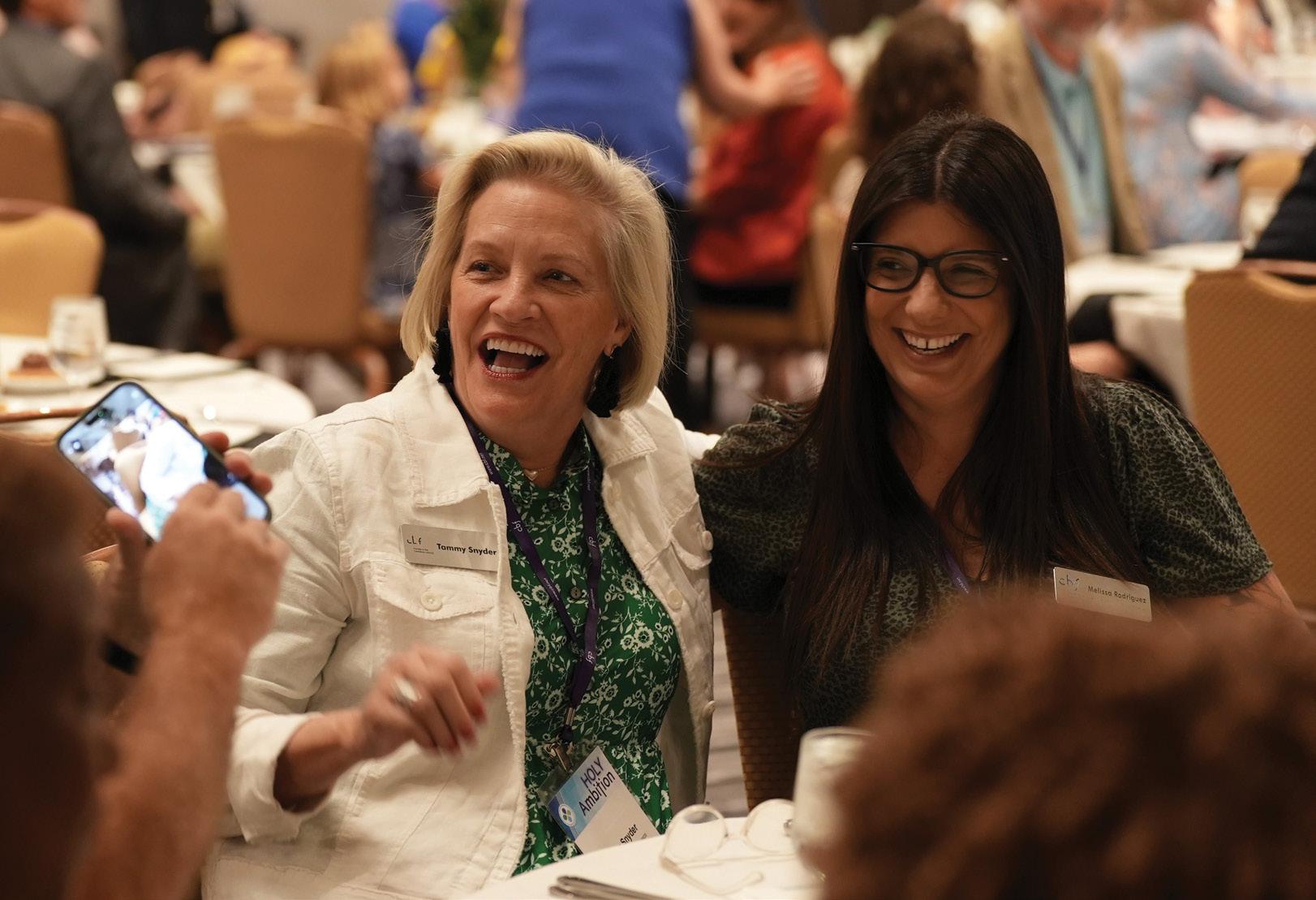
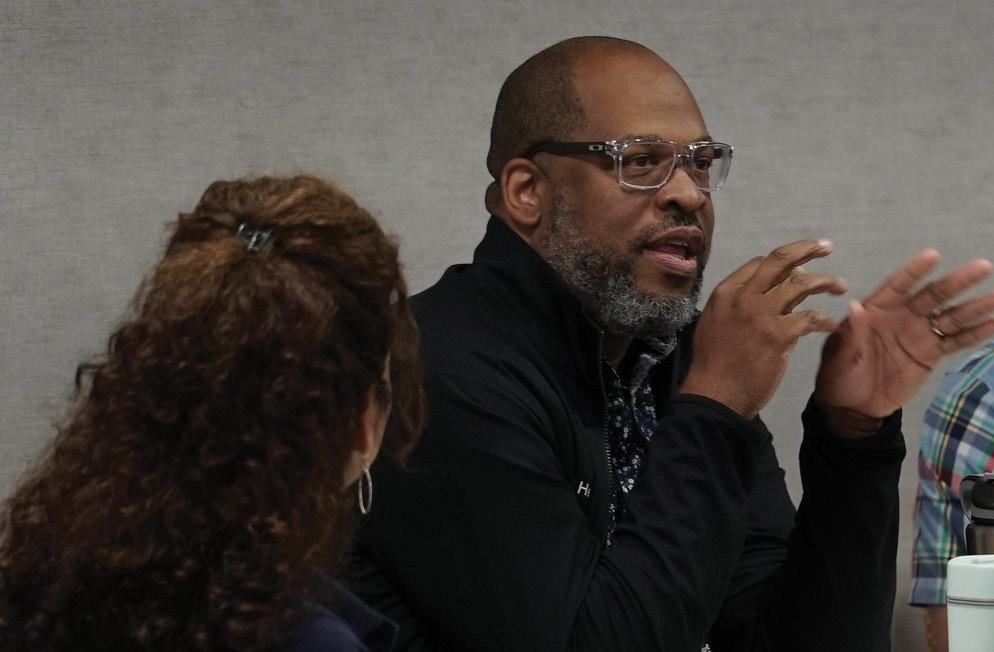
Learning Labs throughout the week offered workshops centered on 10 learning tracks, which gave attendees opportunities to hear from leaders across the Fellowship, dialogue around relevant topics, share their insight and innovations and take practical learning home to their congregations and communities.
The Assembly kicked off with a party in The Gathering Place, where attendees could have fun, meet partners and exhibitors and engage with CBF staff. First-timers to Assembly received a special gift and welcome!
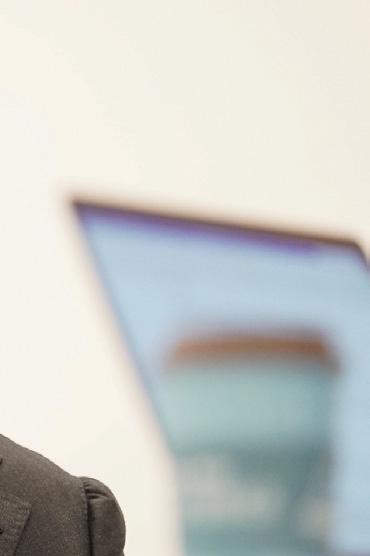

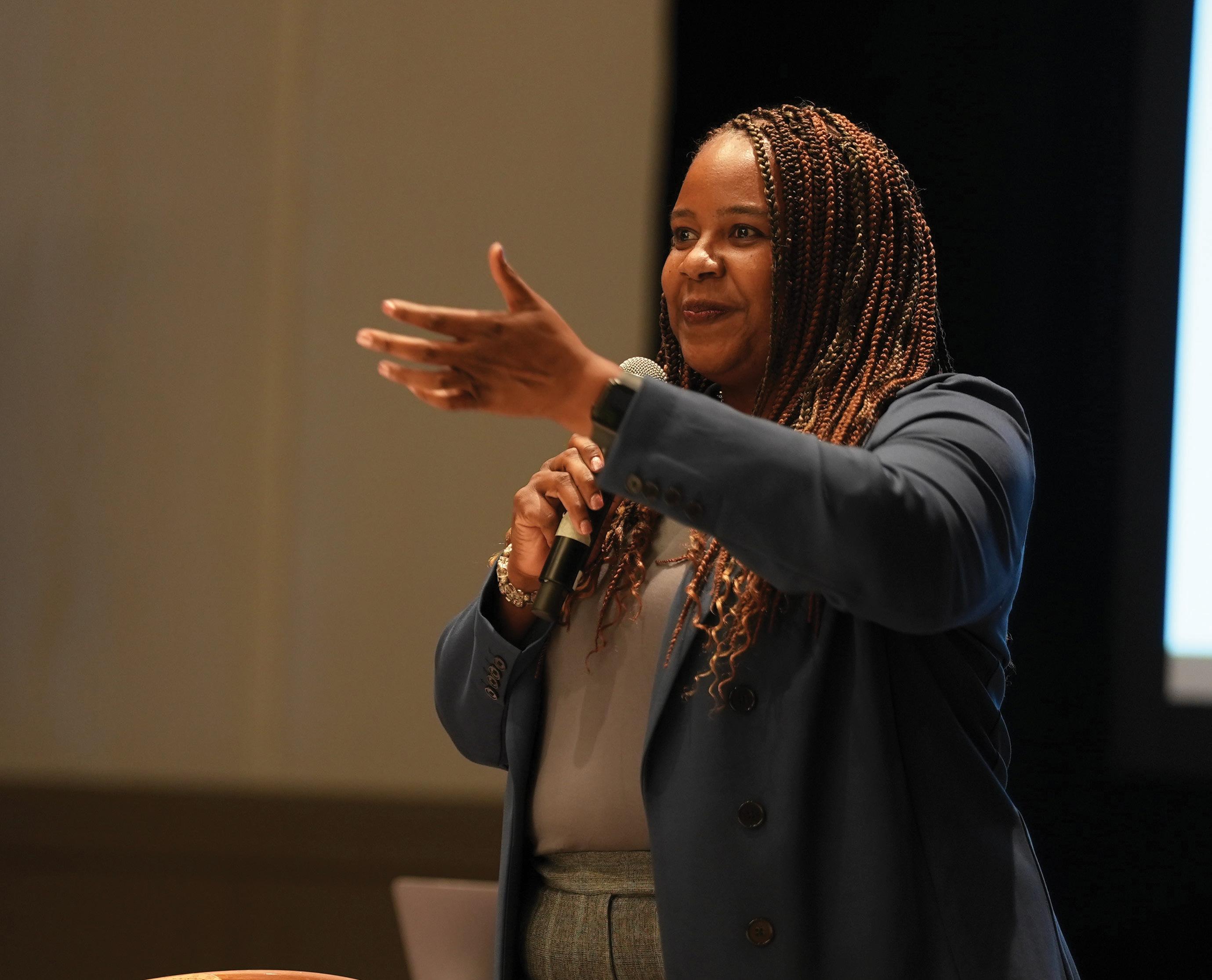
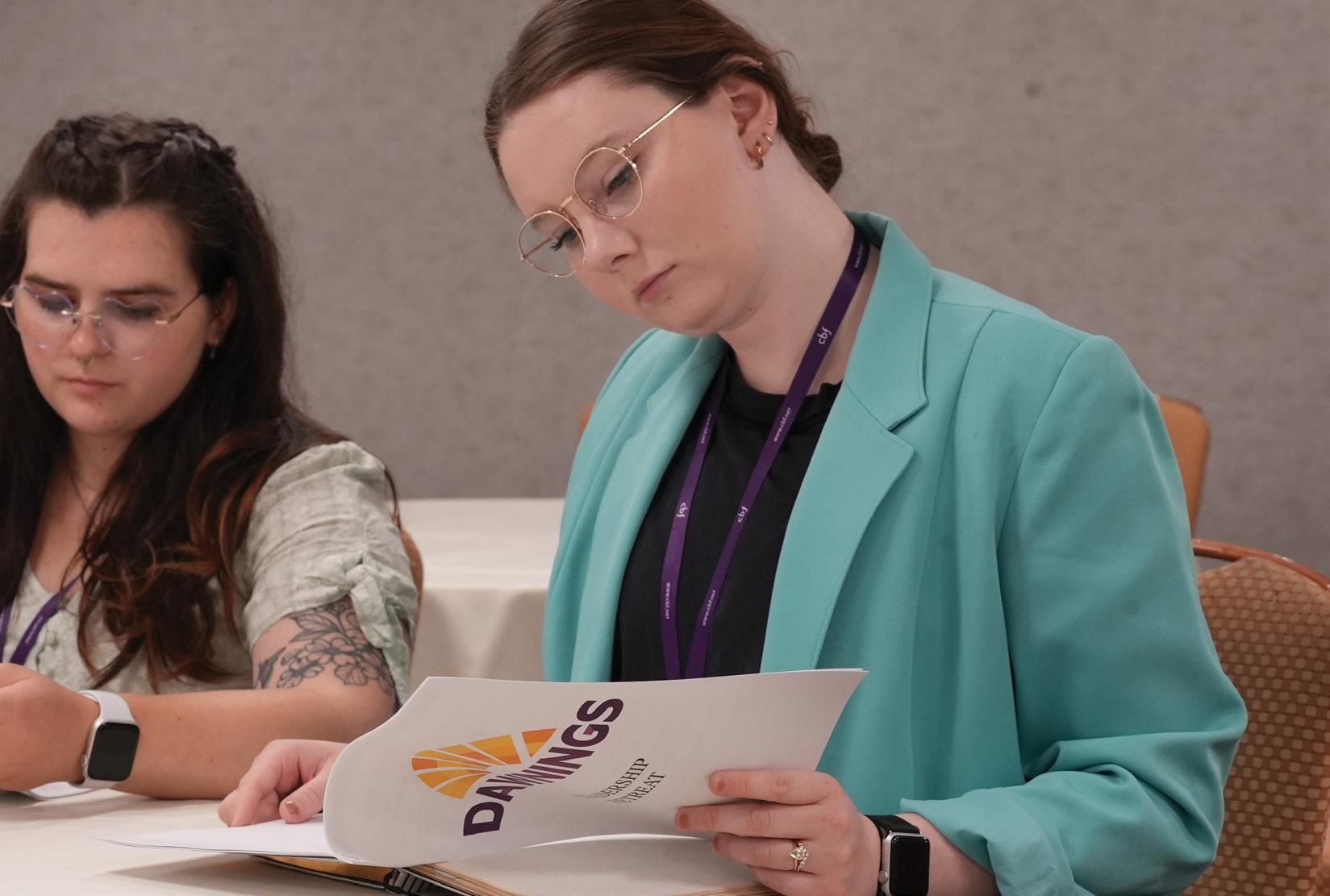
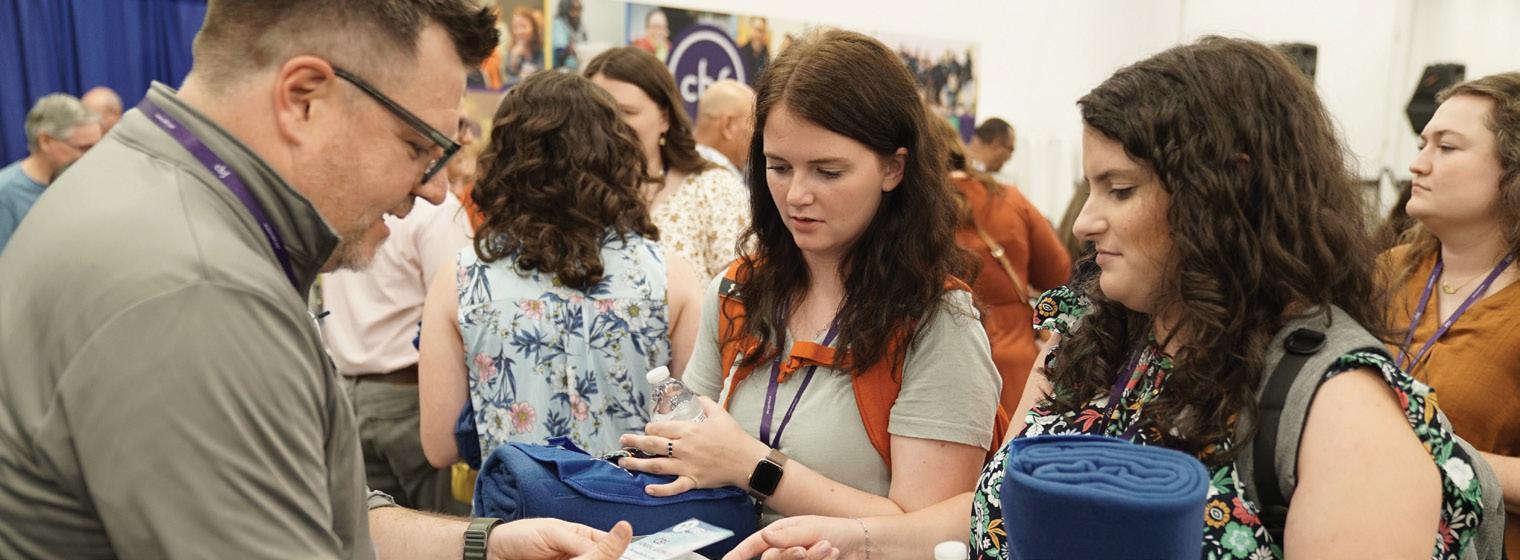

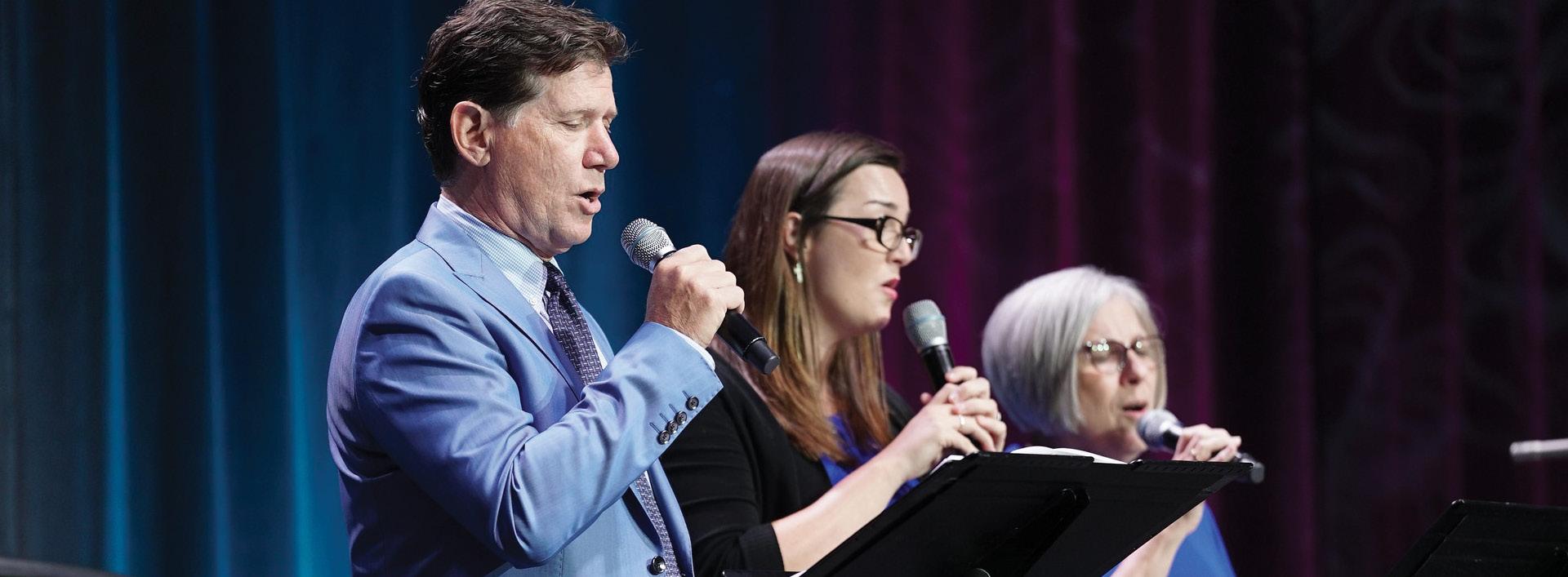
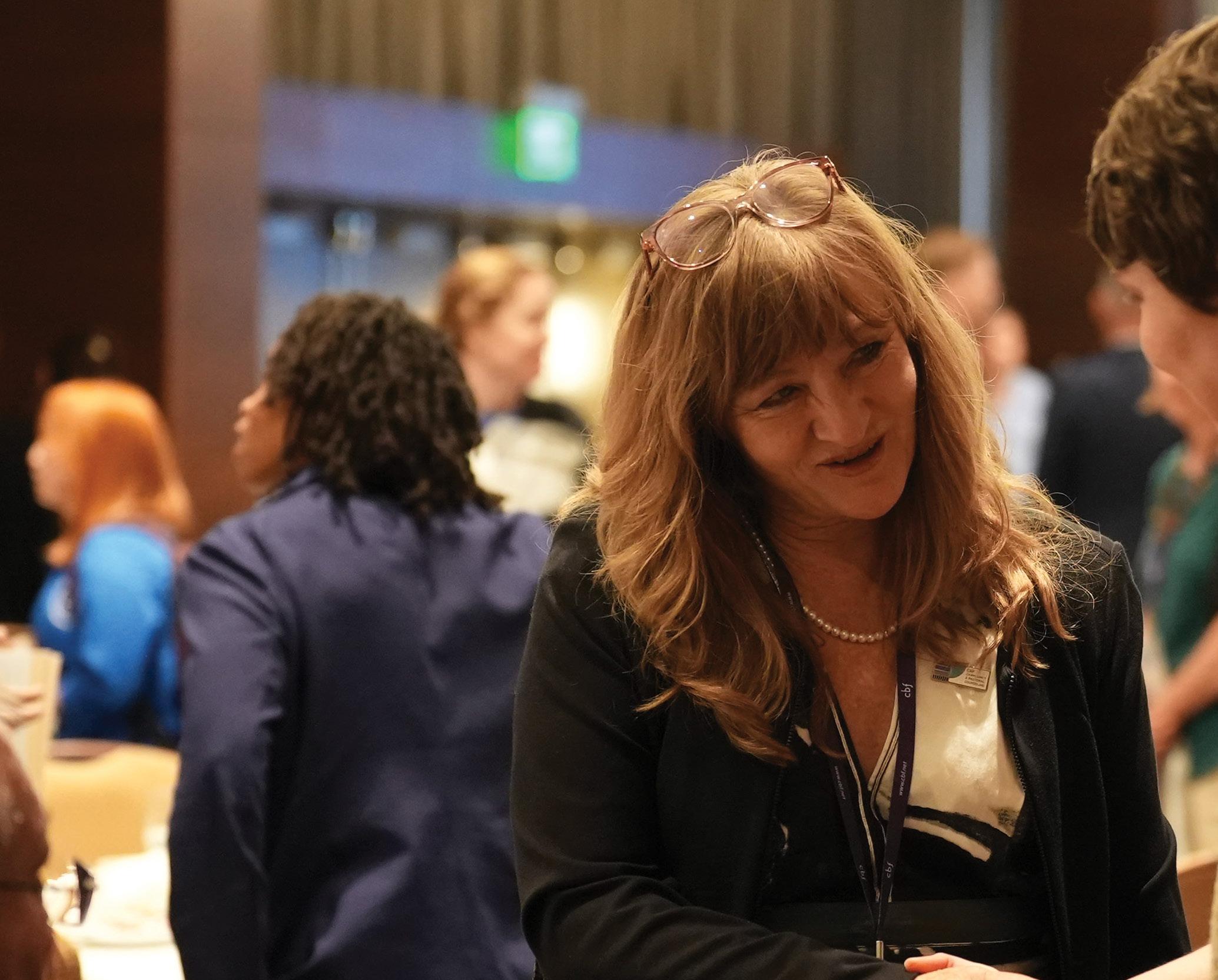


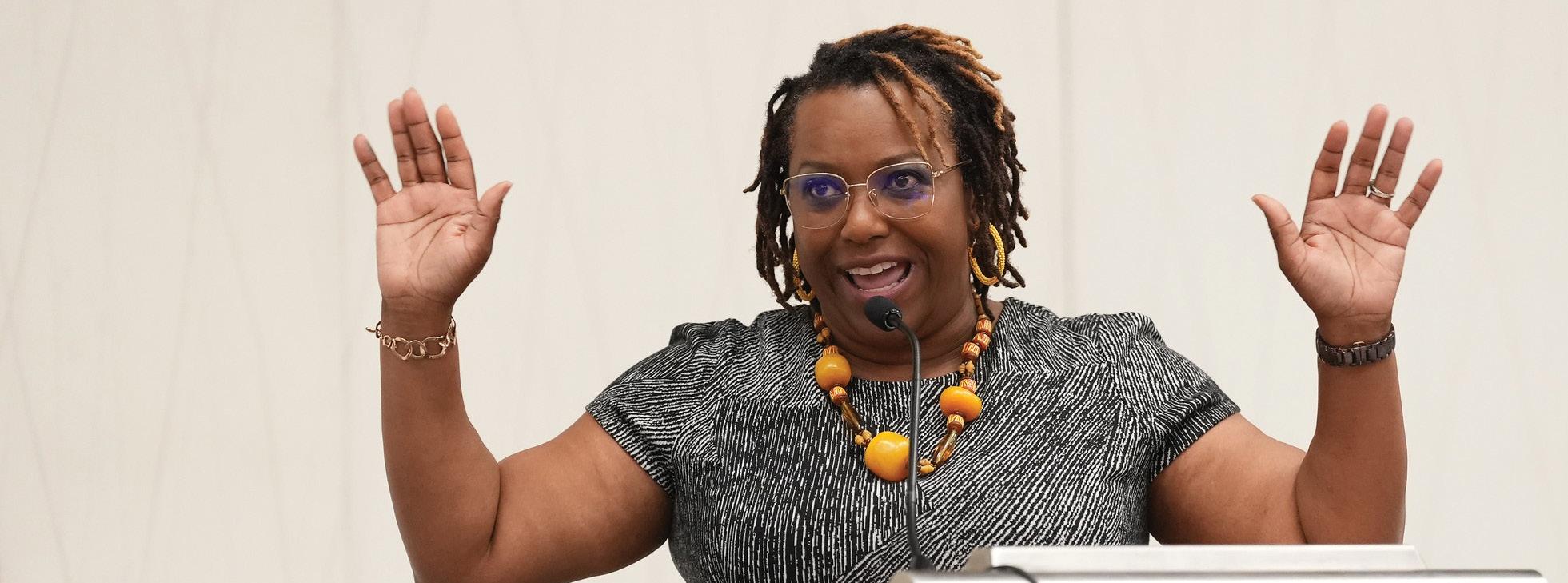
CBF celebrated women in leadership throughout the Assembly, providing attendees ways to connect with lay leaders and partners like Baptist Women in Ministry and learn about Preaching in the Womanist Voice in partnership with CBF’s Thriving in Ministry initiative.
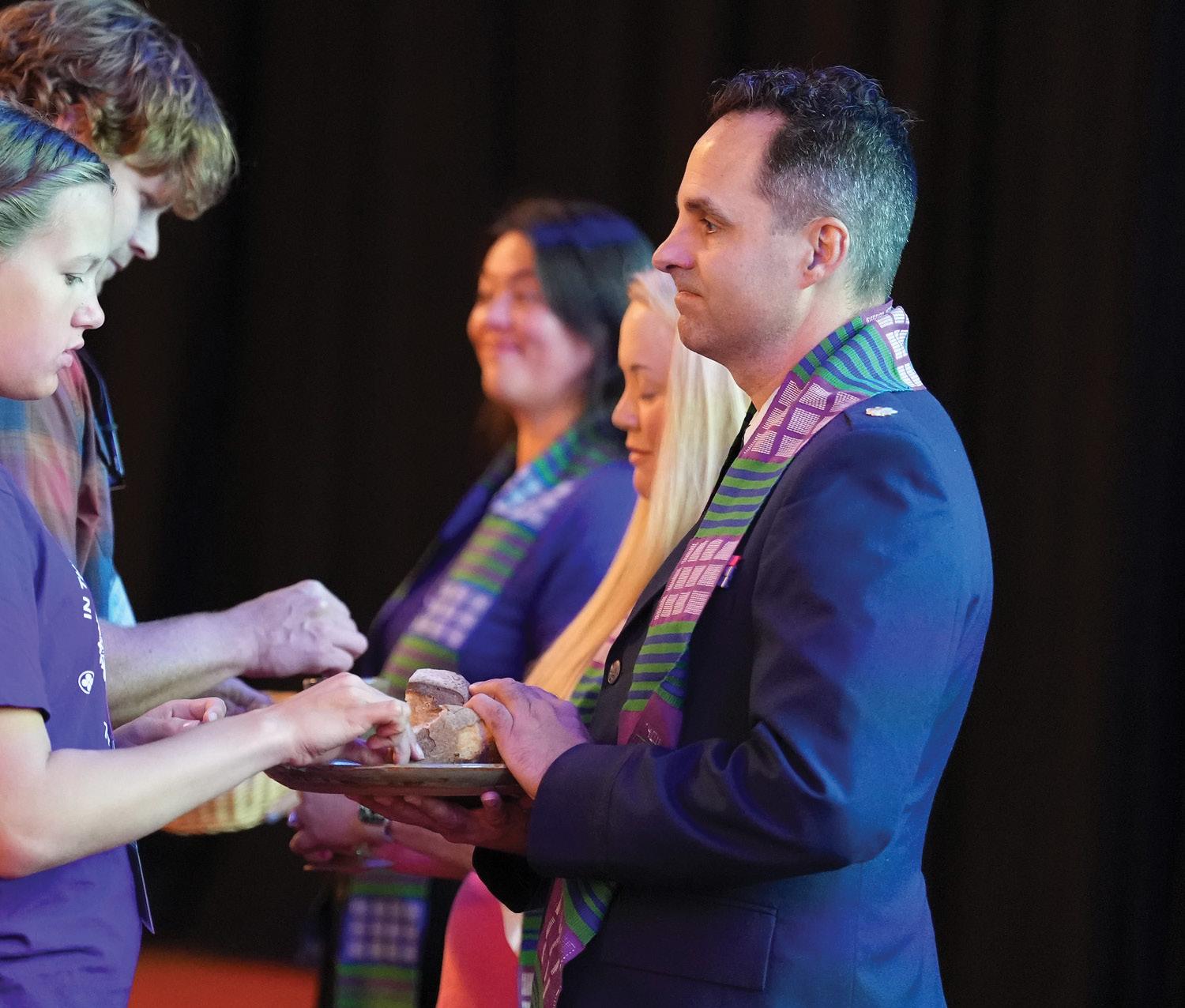

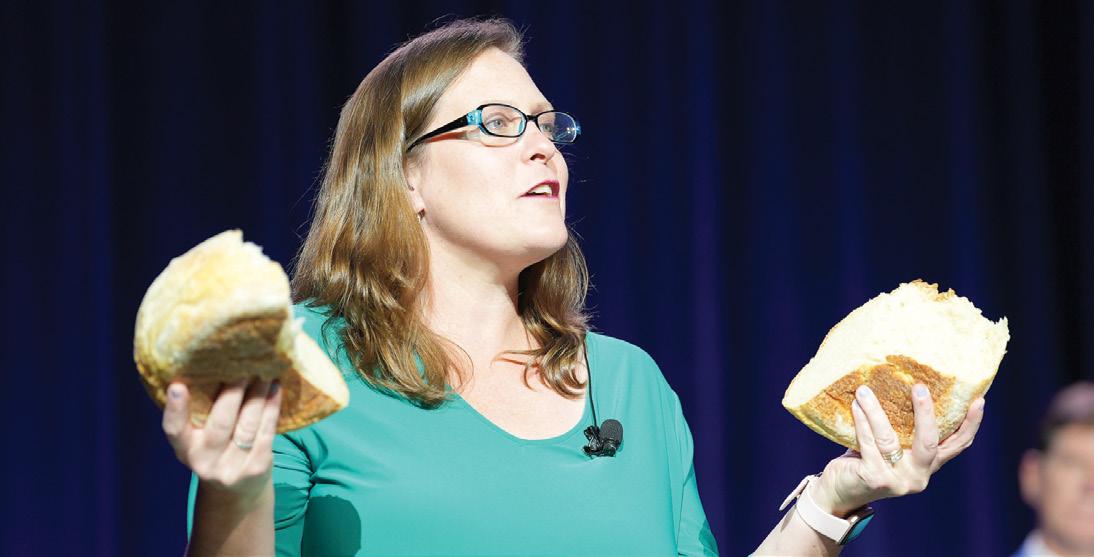
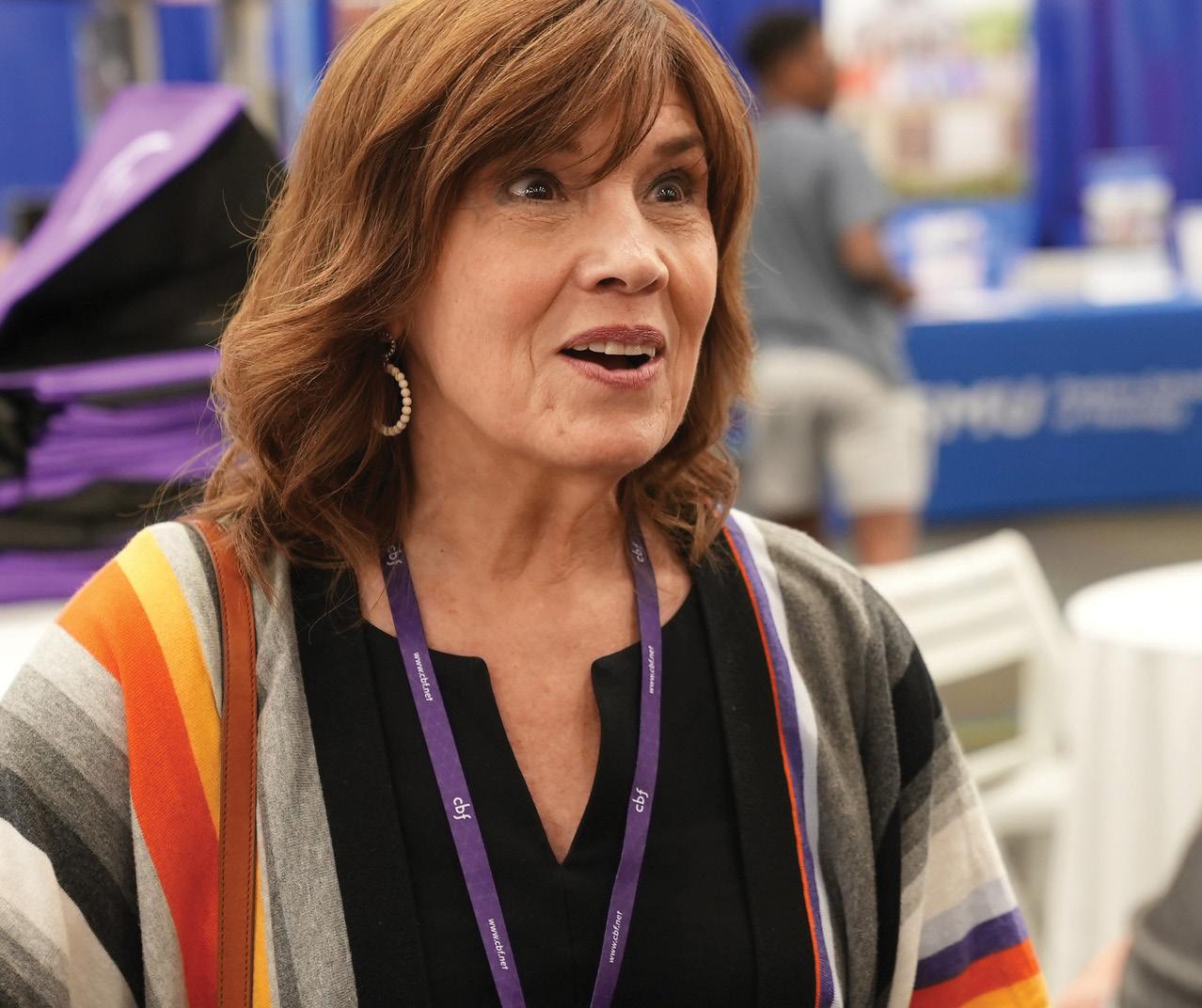
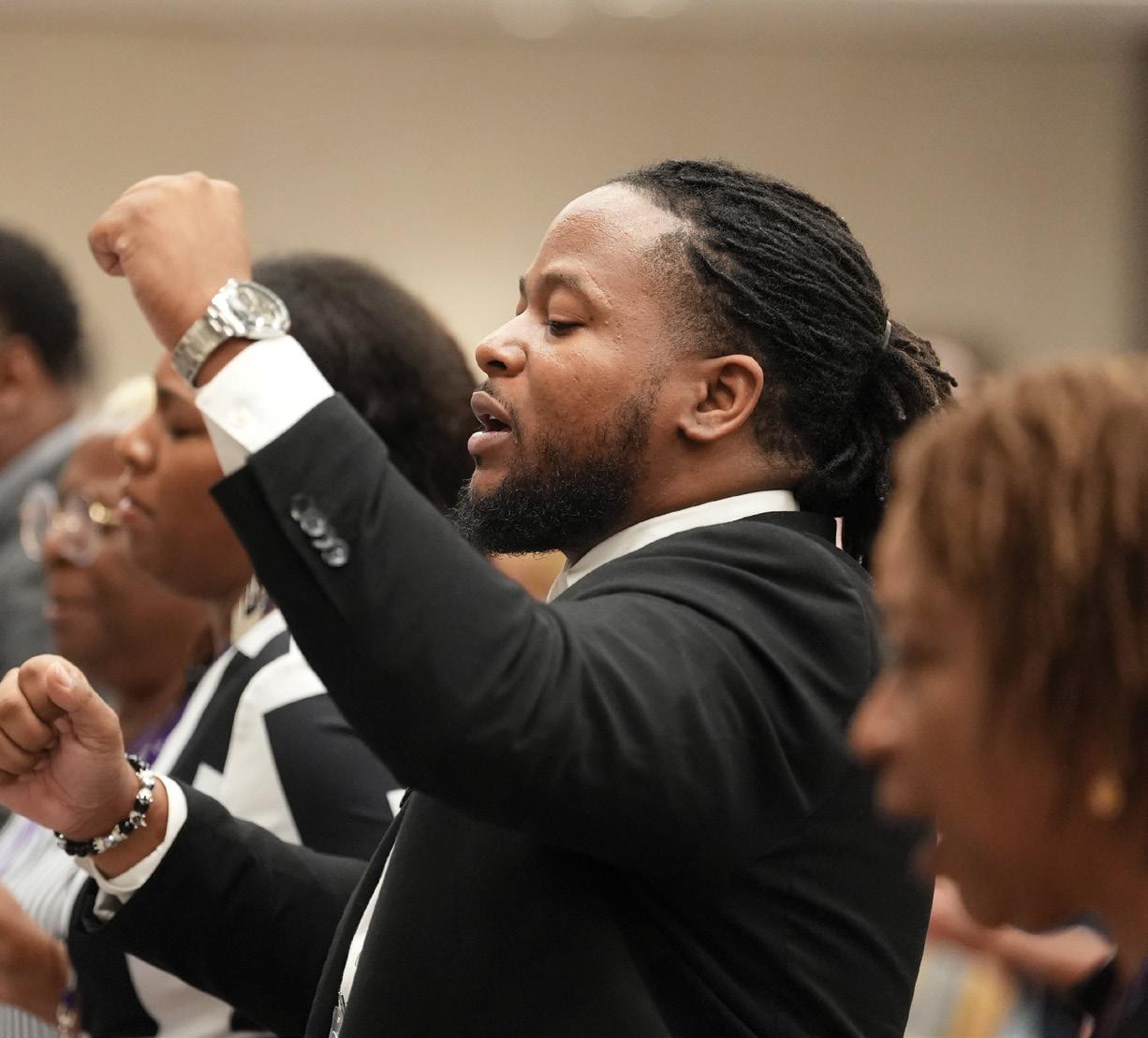

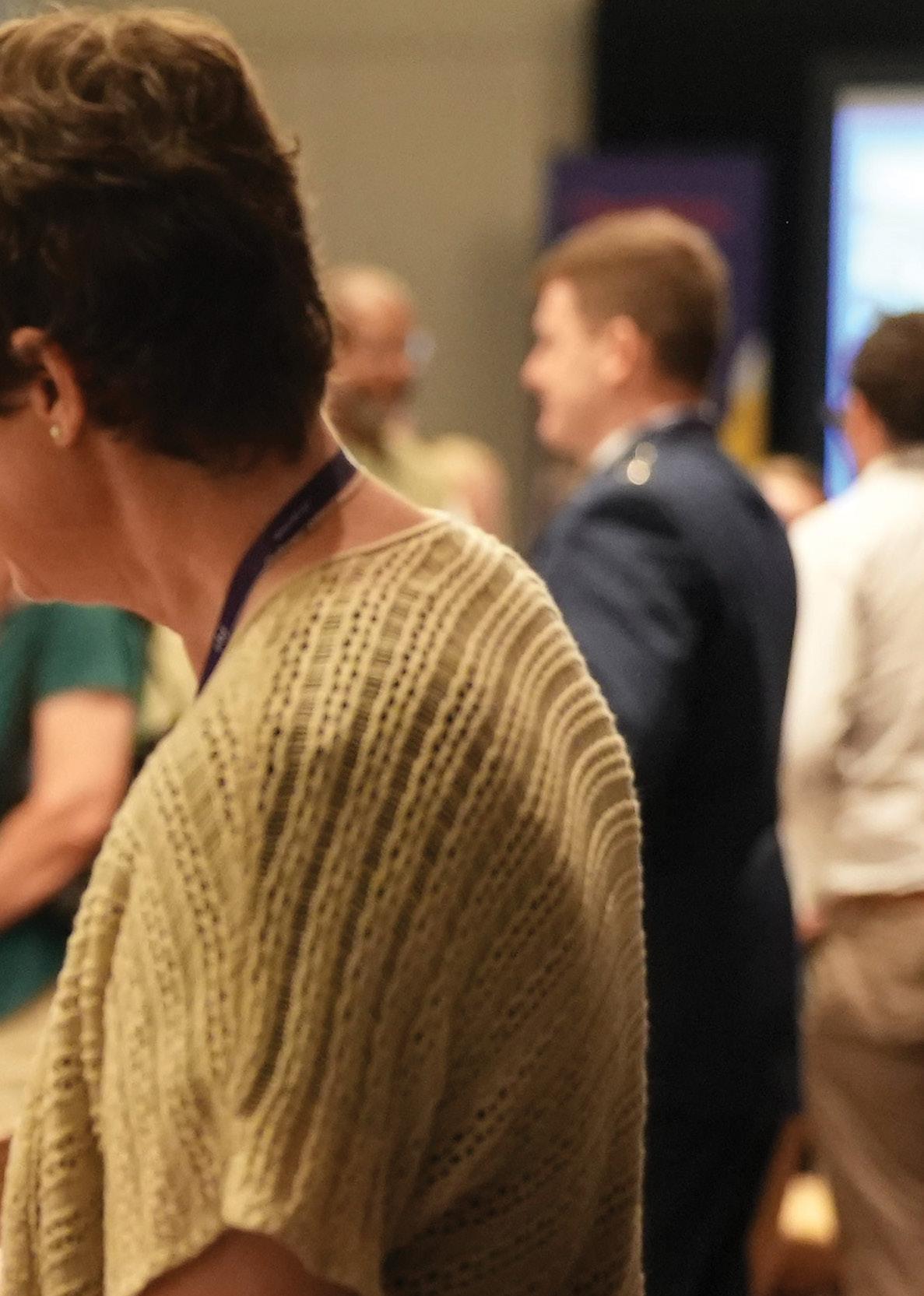
The Assembly broke bread together as part of the celebration of the Lord’s Supper during Friday evening worship led by Jennifer Rygg, pastor of FBC Pendleton, S.C. (left) and CBF field personnel Rick Burnette (below left). Newly-commissioned chaplains, pastoral counselors, field personnel and Global Service Corps served attendees and offered blessings.
Left: “God saw fit to bring us to this place,” said LaTonya Agard who preached Wednesday during CBF’s Pan African Koinonia-sponsored Late Night Worship service. Preaching from Romans 8, Agard proclaimed God’s perfect love and affirmed God’s calling on the lives of all.
Above: During the Assembly, CBF Global Missions commissioned five individuals for service in Cyprus and the United States. (From left to right) Jana Lee and Stella Perrin were commissioned as field personnel to serve in Larnaca, Cyprus. Delores Stimpson was commissioned to serve as Global Service Corps in Durham, N.C., and Beverly and William Baker were commissioned as Global Service Corps in Ahoskie, N.C.
Top: 2022-2023 CBF Moderator Debbie McDaniel shared her reflections on a year of service and time spent in Cooperative Baptist congregations and with CBF field personnel, providing the affirmation, “You laugh, you engage with your whole self, you welcome the stranger, you dream bold dreams, and you model Christ’s command to love one another. You are not content with the status quo. Your churches are seeking ways to be an authentic witness to Christ. You are the kind of Baptist I want to hang around.”
Above: CBF’s new Coordinator for Global Missions Laura Ayala commissioned the new field personnel and Global Service Corps personnel and gave a blessing on their call to serve and be the presence of Christ in Cyprus and North Carolina.
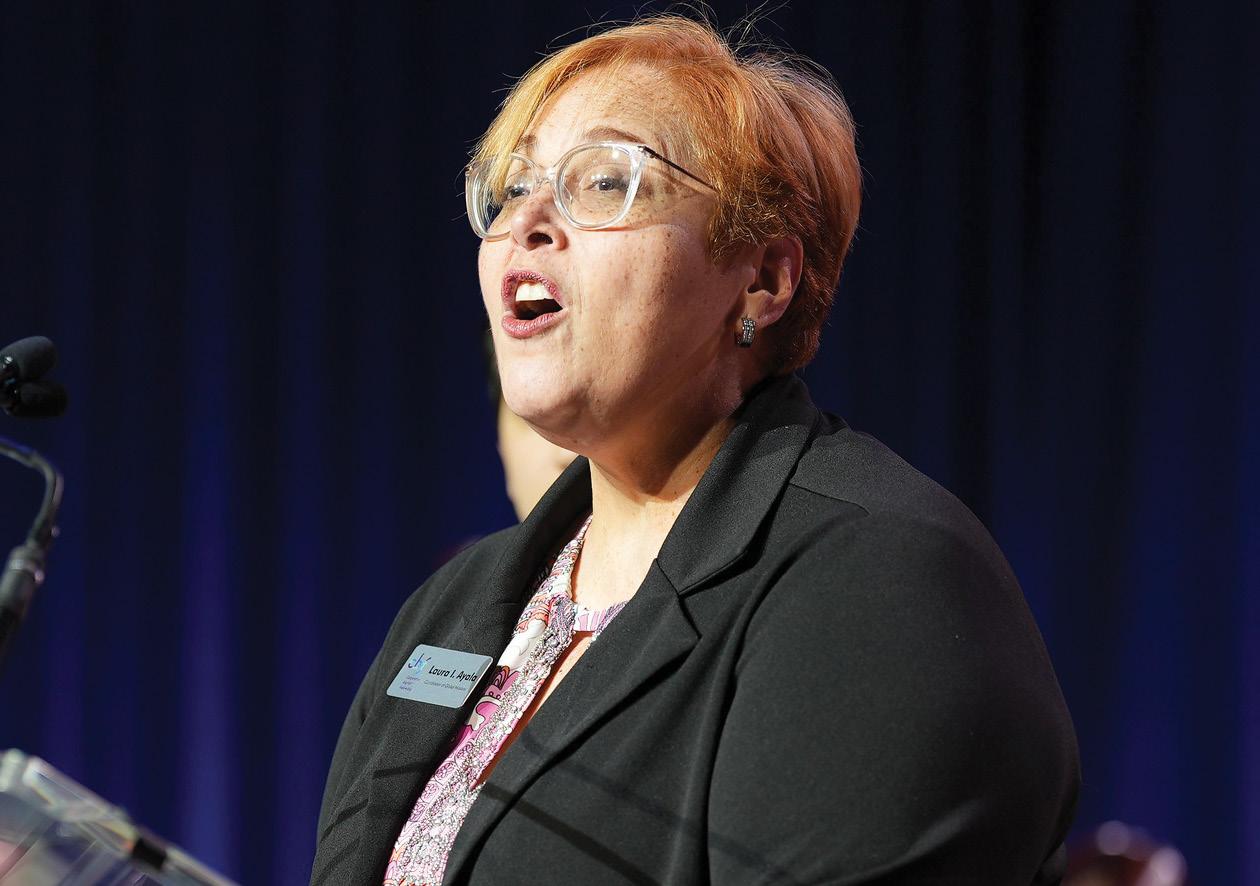
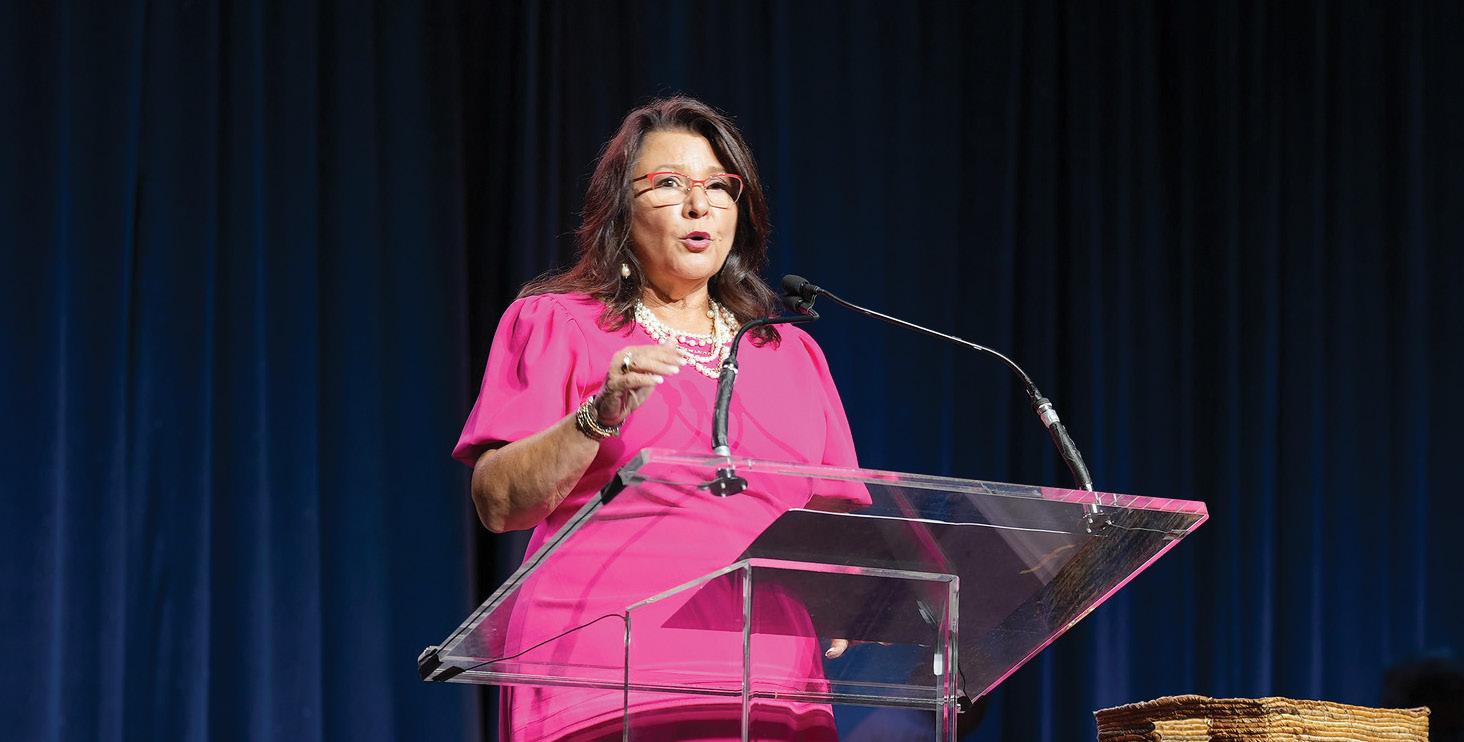
JUNE 15-22, 2024


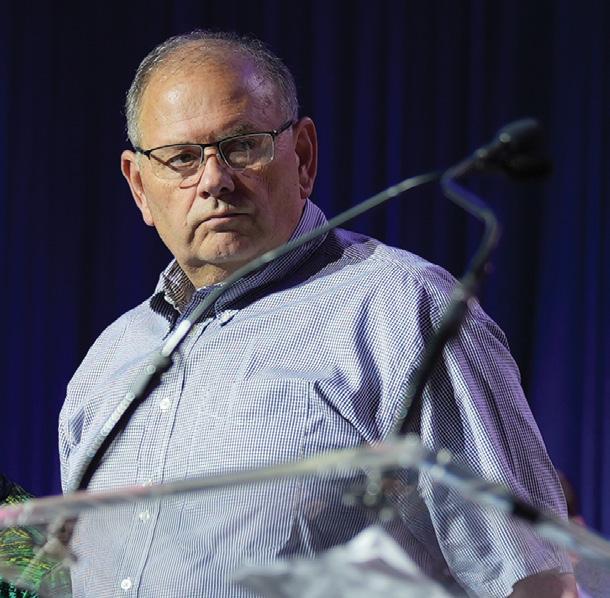
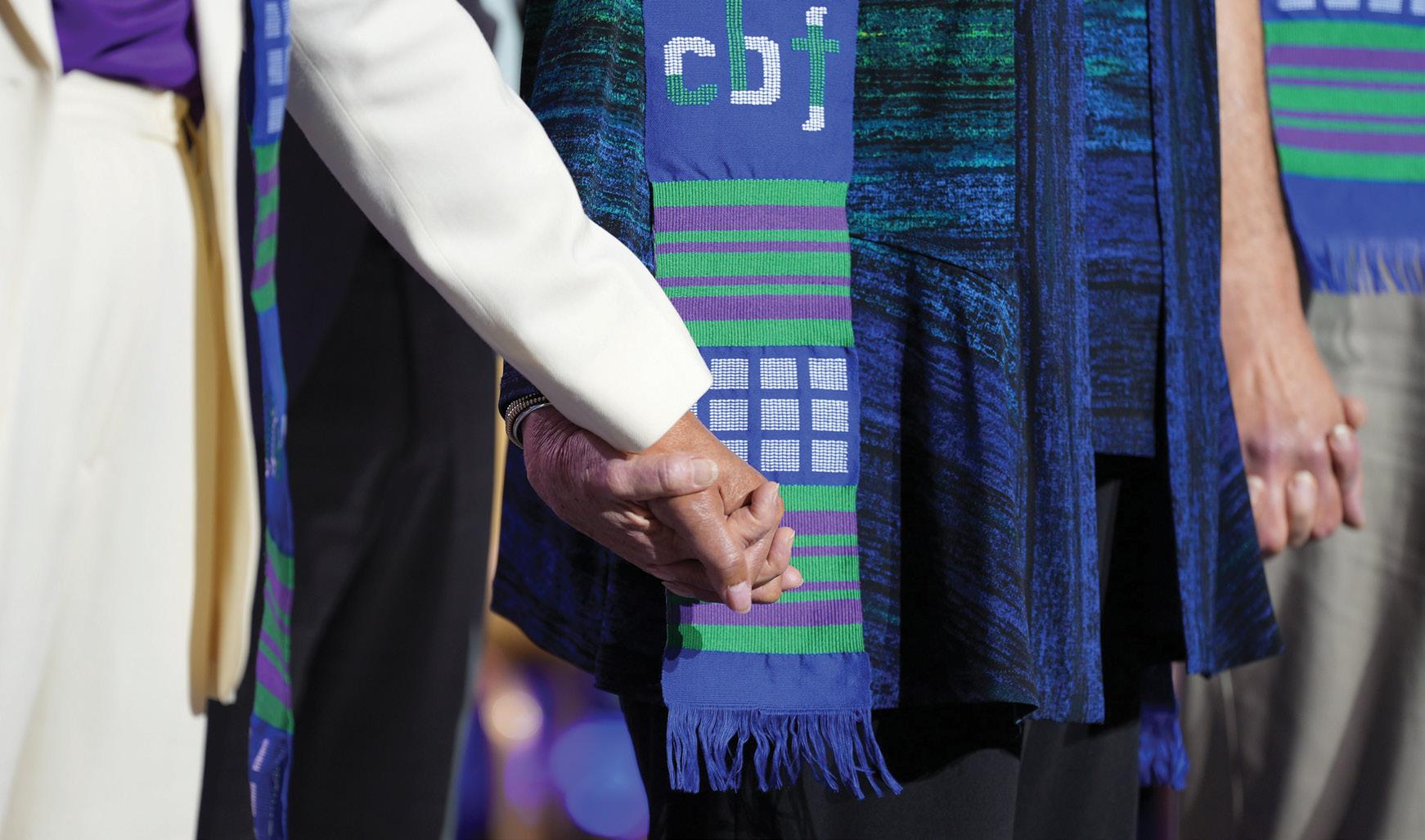

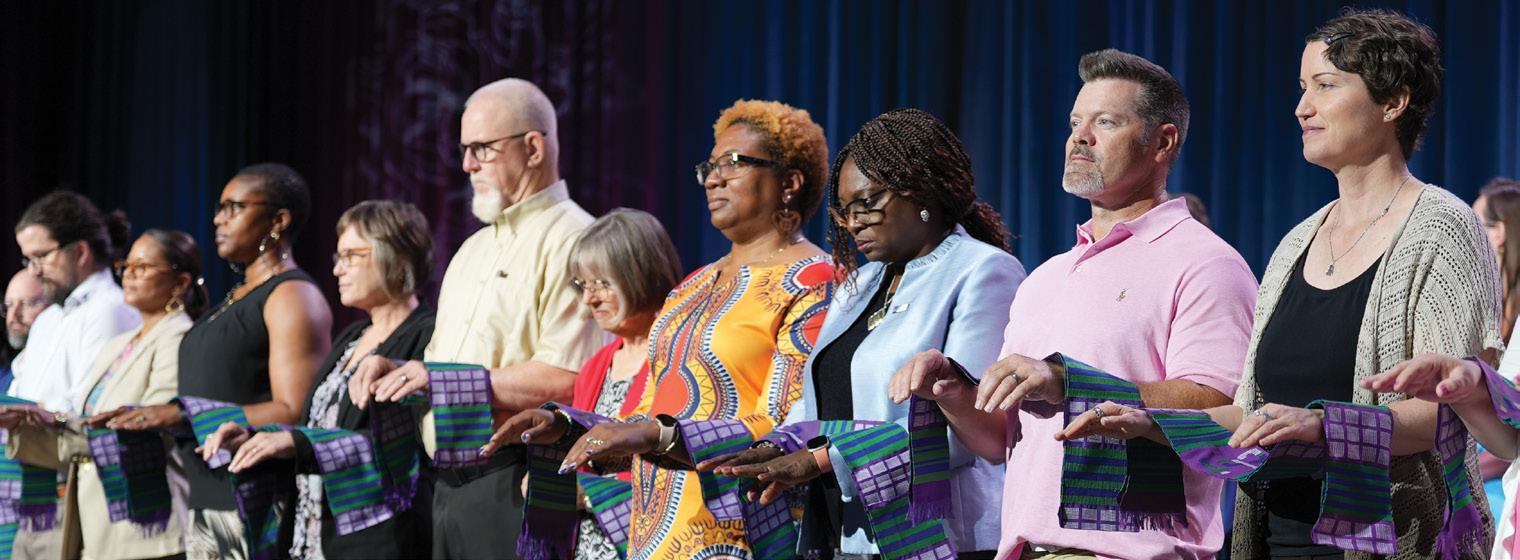
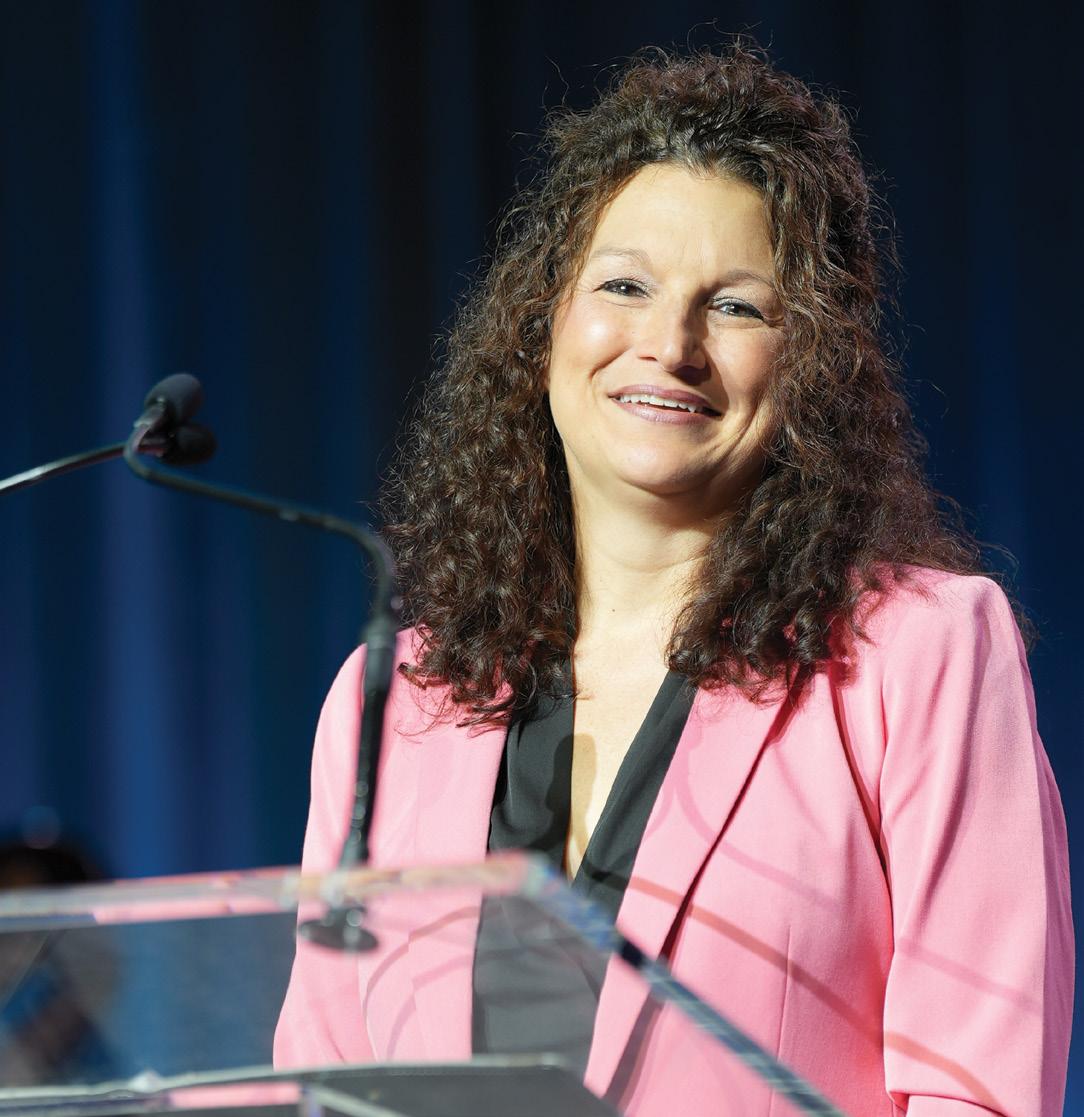
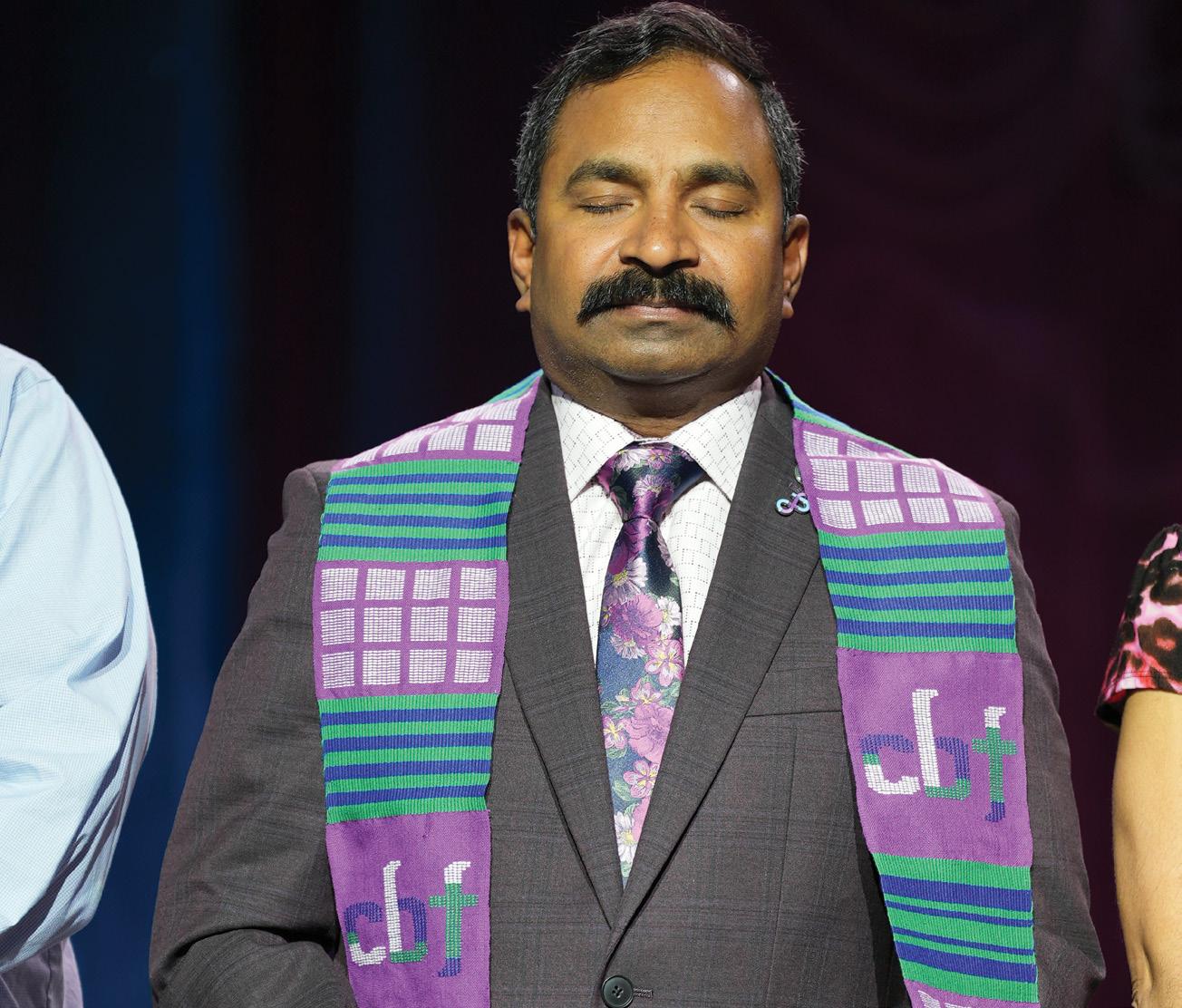
1 2 3 4
Creation and Fall
Genesis 1:26-2:4a, 2:4b-25 and 3:1-23
The Jesus Model
Matthew 1:1-17, Luke 8:1-3, Luke 10:38-42, Luke 24:1-12, John 20:1-18
The Early Church
Acts 16:11-15, Galatians 3:27-29, Romans 16:1-16
Consider how Scripture reveals God’s plan for all of humanity—male and female together—to serve God’s people.
Available in age-graded formats for Adults, Youth and Children.
The Reign of God
A 4-session video and curriculum resource for all ages to help your church articulate the biblical and theological basis for affirming the calling of women and nurture a culture that more fully welcomes their leadership.

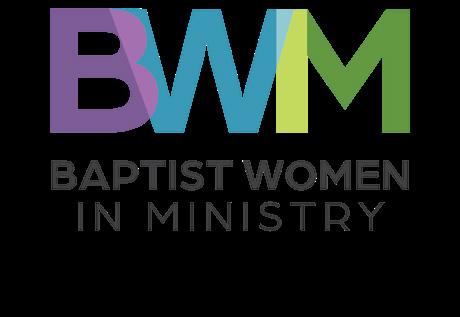

A2017 meeting in a Spanish city hall typifies Michelle and Matt Norman’s ministry in northeastern Spain.
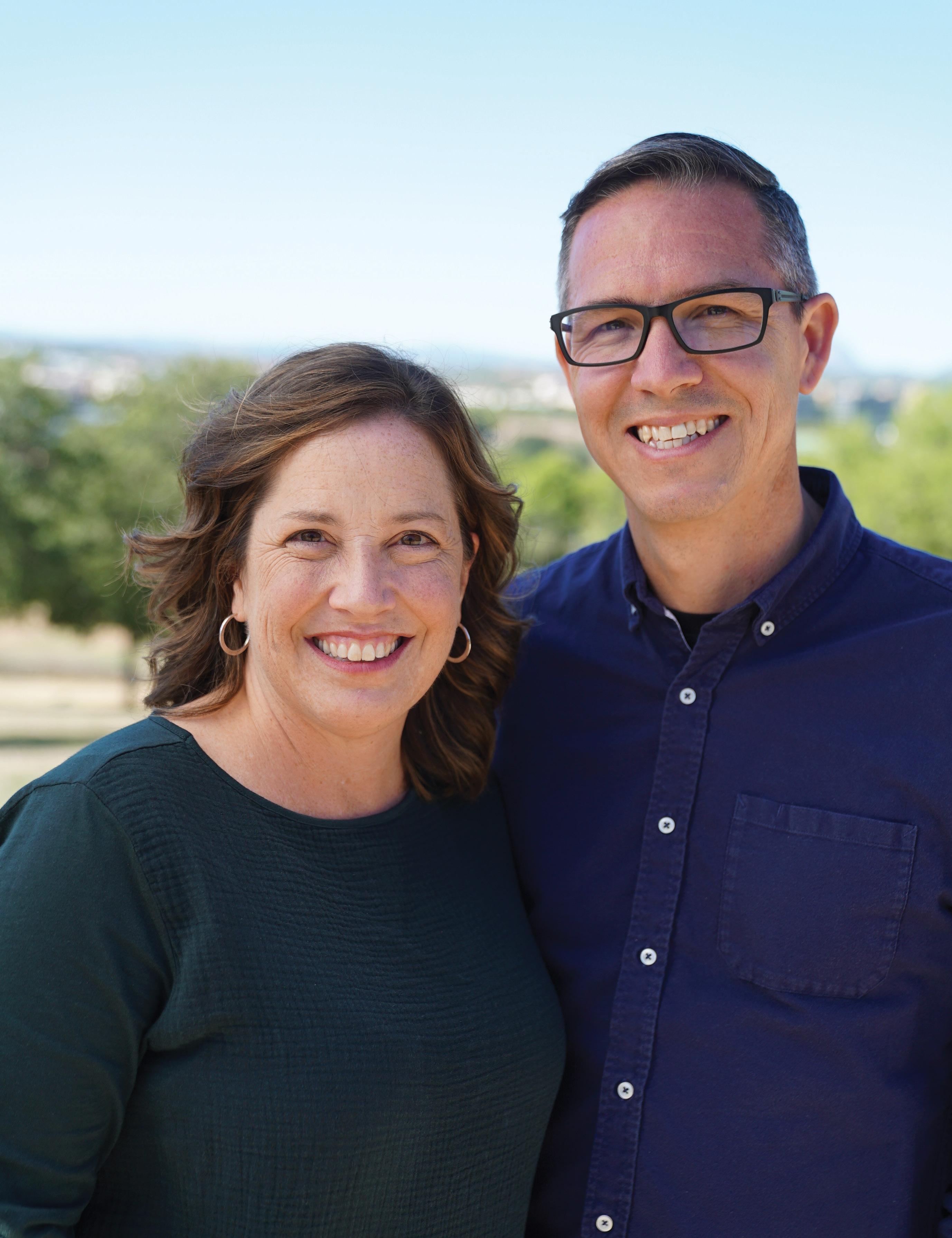
By that time, they had been Cooperative Baptist Fellowship field personnel in the semi-autonomous region of Catalonia about four years. Their progressing proficiency in both the Catalan and Spanish languages had enabled them to develop deepening relationships, especially with local churches.
While visiting with Pastor Nelson Araujo and his congregation in Vilanova, just down the Mediterranean coast from their home in Barcelona, they brainstormed “a bunch of ideas” for meeting needs of at-risk and under-served people.
“We said: ‘We think these are good ideas, but we’re not experts. Let’s set up a meeting with someone from city hall.’ Nelson said that was a good idea,” Matt recalled, adding they weren’t sure they would get a hearing. But they did.
“We told the city leaders who we were and that we wanted to help the community. We shared our ideas, and they listened patiently. They said: ‘Wow, please don’t do any of these ideas. They will create a mess.’ So, we said, ‘We want to do what you want us to do.’”
Then city officials and Christian ministers together sketched out a hunger-relief program—the city would pay for the food and provide the space, and the church would provide the volunteers.
Out of that collaboration, Espai Sopem—Catalan for “dinner space,” or “the place where we eat”—was born.
“They developed a system that provides really nutritious meals from the local schools,” Michelle reported. “We trained volunteers on food safety and nutrition, as well as social services in the town. And then people would come, and volunteers would sit down and eat with them. Espai Sopem helps people avoid homelessness and also find social services. They often don’t trust the government, but they trust relationships.”
The ministry thrived, then survived the enforced isolation of Covid. And along the way, it became part of the culture of the community, with hope for the future.
“When city people realized this was being offered by a church, they were surprised that a church was actually living its faith,” Matt said. “But they wanted to help, and now more volunteers come from the city than from the church, which is super small. But that supports relationship-building, and the ministry runs on two tracks—to volunteers and to recipients.”
A thriving ministry came to be because the Normans started by acknowledging they didn’t come with answers to community needs. They developed relationships with local Christians and expanded that circle to include non-Christians as well. They listened to others and put their energies into making others’ dreams come true. They expressed compassion. And they persisted. Now, hungry people are fed. Hurting people receive aid. Secular people see Jesus in a brighter light.
The Normans celebrated their 20th anniversary with CBF this summer. The Fellowship commissioned them as Global Service Corps personnel in 2003, and they spent two years working with international students alongside Canadian Baptists of Ontario and Quebec. Then they moved to Atlanta, where Matt served with CBF Global Missions, processing and training prospective field personnel, and Michelle did contract work with CBF and also ministered to refugees as a volunteer with World Relief.
After a few years, they sensed God calling them to missions overseas. Visa problems prevented them from landing in another European country, but after a season “in limbo,” an appointment in Spain opened up.
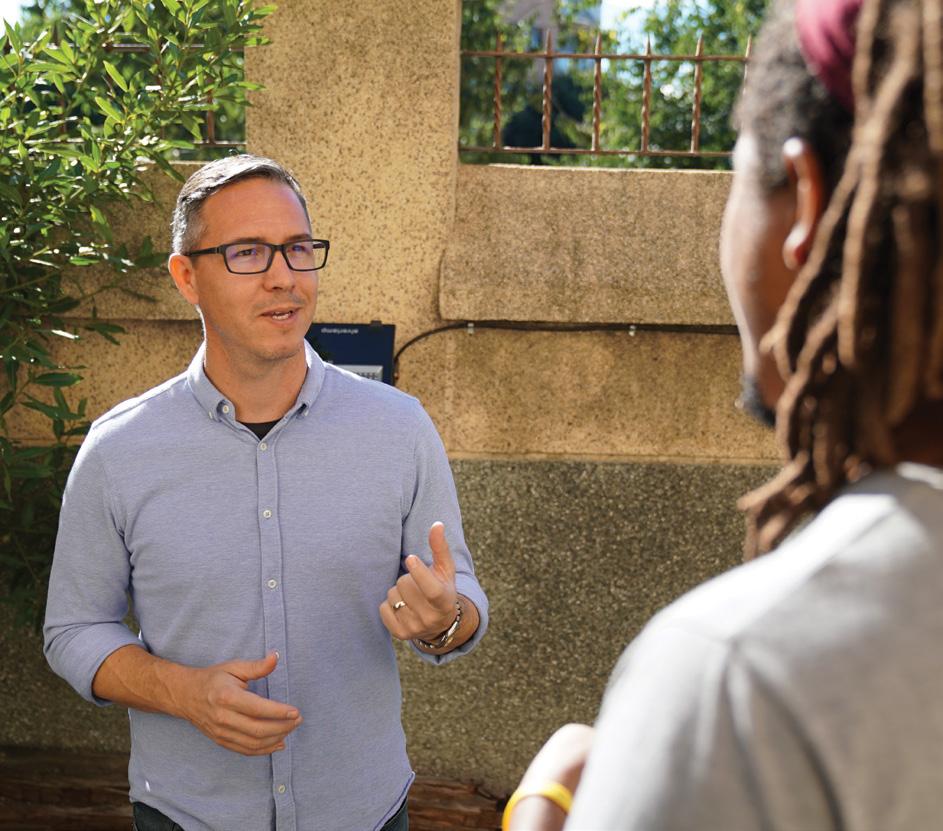
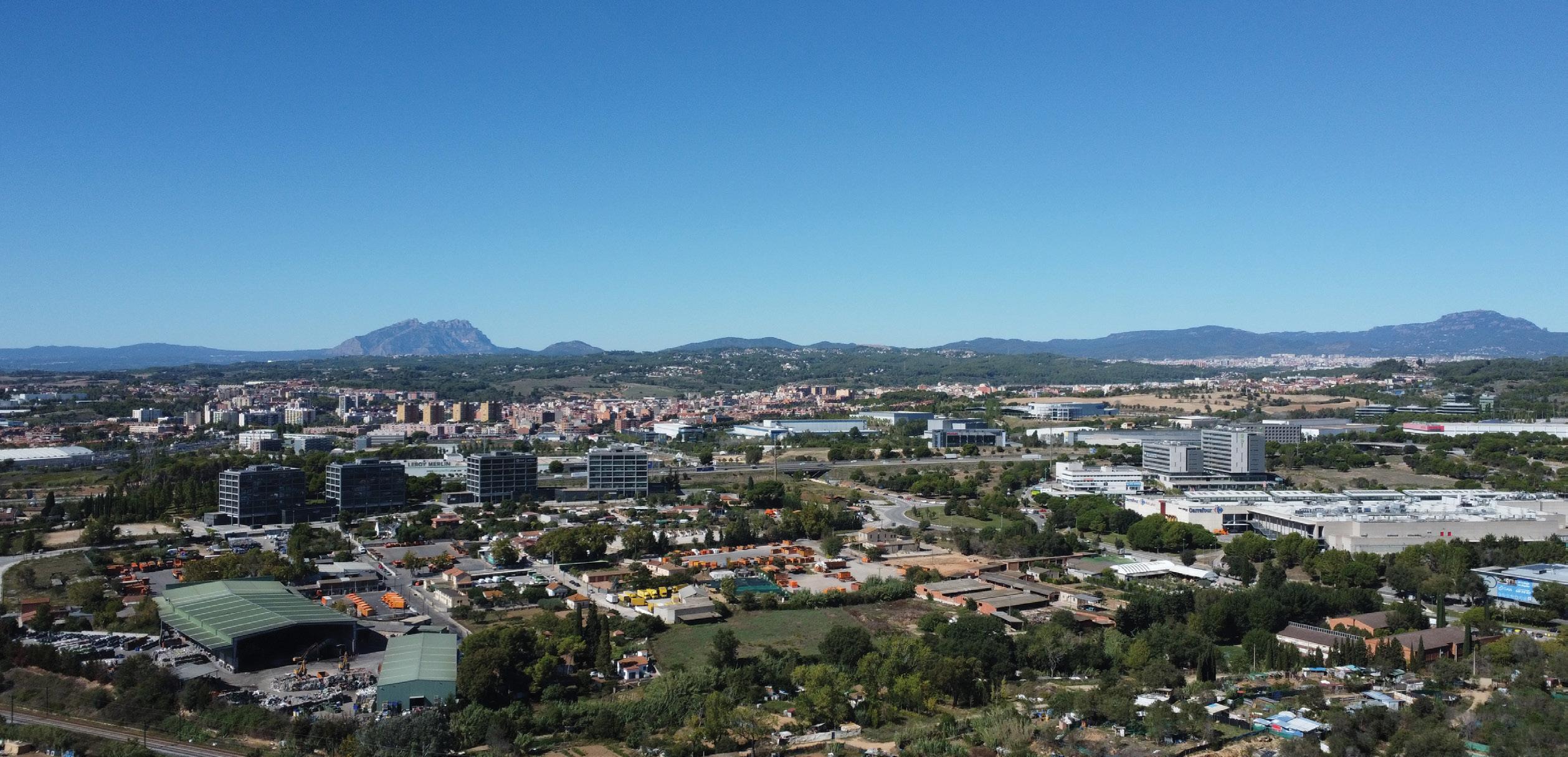
“We loved the opportunity to engage Barcelona long-term,” Michelle said. “If one area of ministry wrapped up, we could move to another ministry but not relocate. We wanted to participate in a long-term process in one place.”
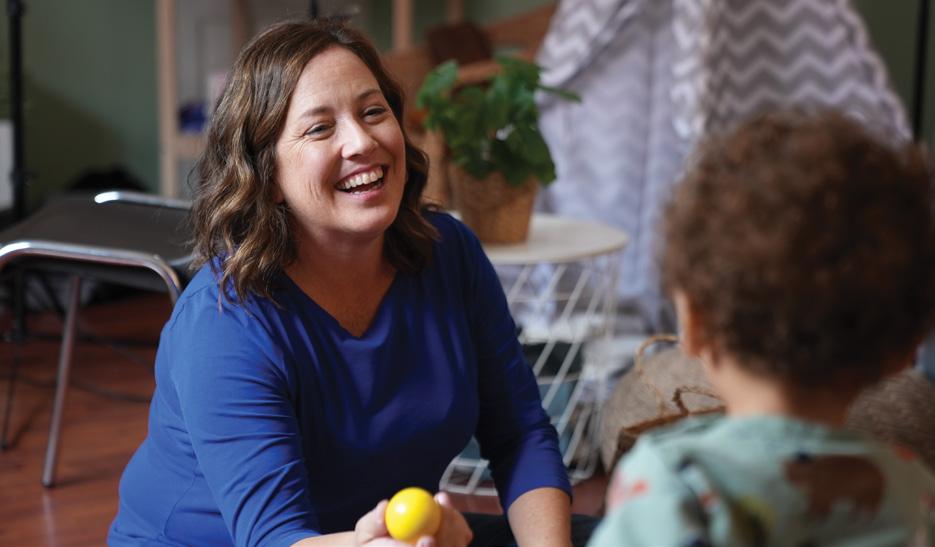
That place is one of the most secular regions anywhere.
“The Catalan people fought against (Francisco) Franco in the Spanish Civil War. They were fighting for democracy to rule in Spain,” Michelle explained. “Because of the Catholic Church’s support of Franco, the Catalan people rejected Christianity. They saw the very worst of what happens when religion aligns with destructive power.”
“Three generations of people basically have said, ‘We don’t want to have anything to do with the Catholic Church, with Christianity,’” Matt added. “Spain is extremely agnostic, with a majority of people not having any thought whatsoever about church or God in their everyday lives.”
Despite what outsiders might expect, Catalonians’ secular mindset does not translate to isolation or indifference to others.
“It’s a very city-based society,” Michelle said. “People are very concentrated, and they move on public transit. And they walk through the city—to the grocery store, to the doctor’s office, to their kids’ school. So, they interact with people a lot.
Matt and Michelle live in Catalunya, a region of Spain that speaks Catalan and is home to a population of almost 8 million people. According to the Generalitat of Catalunya, there were only 818 Protestant churches of any denomination in the whole region in 2022. That is about one church for every 10,000 people.
“They know their neighbors, and there’s a very strong sense of community among the people of Catalonia. And with that comes a strong sense of solidarity. People connect and feel a sense of fighting for one another, joining one another in their struggles.”
In that context, “the most important work we’re doing here is bearing witness to Jesus Christ,” Matt said.
Sometimes, that means talking to Catalonians about their perception of God and Christianity.
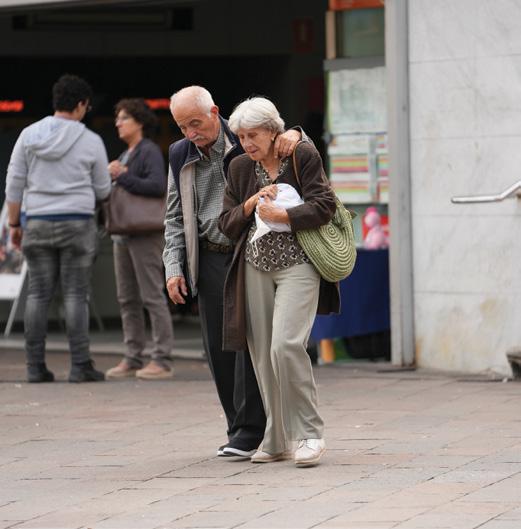


“I’ve had conversations with people where they’re like: ‘Oh, you’re a Christian. Well, I don’t believe in God because of these reasons,’” he noted. “And I look at them and say, ‘I don’t believe in that God, either, because the God you’re describing is not the God I know.’ So, bearing witness to Jesus is helping people understand who this Jesus is in ways they’ve never been able to have conversations about before.”
Other times, bearing witness means helping people “see glimpses of the Spirit of Christ in the community,” he added. “We see people who are not religious engage with refugees and open their homes, (and) they’re not doing it because of any faith, but just because they see people as humans.
“We tell them: ‘You know, that’s the way Jesus actually teaches us to act. That’s what Jesus would do.’ And they look at us and ask, ‘How come no one’s ever told us that?’ We tell them: ‘I don’t know, but that’s Jesus calling you to do that. You’re doing the work of Jesus when you do that.’”
Those conversations dovetail nicely with the Normans’ priority on equipping or “walking alongside pastors and churches” in Catalonia. Structurally, that looks like conversations with pastors and other church leaders, as well as facilitating peer learning groups. Practically, it involves all of them—the Normans and their Christian friends—in figuring out how to make the Gospel accessible and compelling to people who otherwise don’t have a clue what Christianity is all about.
“The spiritual environment is tough and really difficult for anyone who’s a Christian—the church is small and different than the culture,” Michelle said. “But at the same time, it’s such a beautiful culture. I see solidarity and caring for one’s neighbor. I see God already at work in the world.”
Ministries offered by the Normans and their Christian friends come alongside and supplement God’s already-in-progress work in the region. In addition to Espai Sopem, the Normans support other ministries, including:
• Grupo 5/14, a nonprofit that encompasses all their social ministry in the area. Although started before the Normans arrived, Michelle is its executive director. “5/14” refers to Galatians 5:14, “The entire law is fulfilled in keeping this one command: ‘Love your neighbor as yourself.’”
• Mamáventura, a ministry to immigrant women and their children, based at First Baptist Church in Sabadell, just north of Barcelona, where Nelson Araujo now is pastor. This ministry serves many women who are victims of spouse abuse. “We’re walking alongside and pointing out the strength these women already have within them and encouraging them,” she said.
• Mosaic, a worship/outreach ministry of First Baptist Church in Sabadell, which the Normans worked with Araujo to develop. “Our goal is to break down the barriers of church for people who are interested in learning about Christian faith,” Michelle explained. “People can express doubt and questions. We ask what stands out to them in Scripture. We’re not telling people what to believe but letting the Holy Spirit work through Scripture.”
• A food bank in Cerdanyola, on the northern edge of Barcelona. Matt works there regularly, helping to ensure immigrants and Spanish people on the edge of survival have enough to eat.
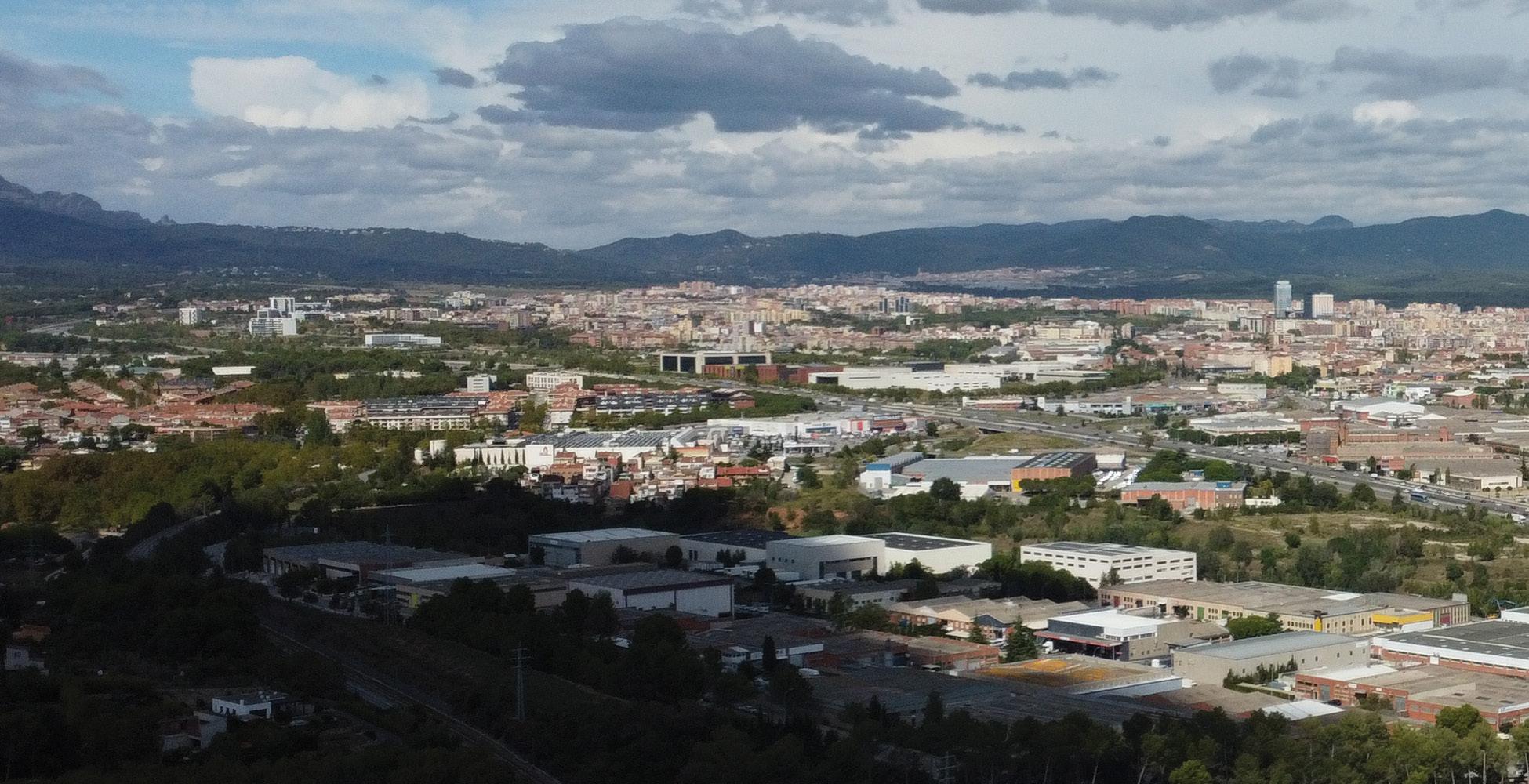
“We try not to do anything that’s not locally initiated,” Matt said. “So that means we are always listening, asking questions and coming alongside and making sure that people who grew up here, who know the culture, who speak both languages are the ones who are initiating the ministries and think the ministry we’re doing is a good idea.
“Partnership is extremely important for our work. Without partnerships, we really don’t do anything.”
Matt also spends untold hours in conversations with pastors—not only in Spain, but also across Europe through International Baptist Theological Seminary’s learning network—jointly seeking to untie the tangled knots of complications that prevent secular people from setting aside their skepticism and considering faith in Jesus.
Relationships that grow out of those long conversations, as well as meetings with lay leaders, are reciprocal, the Normans said.
“We’re not working with a perspective of coming in with ideas and saying what we’re going to do,” Matt explained. “We came here to learn the culture and to build relationships. We try to ask God and listen to people here to find what ministry we should do.”
“This is our work and our calling, but we’re not complete experts,” Michelle added. “We are encouragers and helpers. We want to help people here realize their dreams and hopes for the church. They have plenty to give.”
Their philosophy of ministry syncs with the theme for CBF’s 2023-24 Offering for Global Missions, “Equipping with Every Good Thing.”
“We see our ministry as one of equipping,” Michelle stressed. “It is noticing the sparks of God, the bits of God in each person—how God is working in different lives and calling that out and encouraging it.”
“Our hope is to walk alongside, to help equip them as they seek to reach their dreams, their visions for ministry, for the community, for their lives and to become who God created them to be,” Matt added.
“So, one of our great joys is seeing people get excited about engaging the world around them with their gifts,” Michelle said.
Such joy infuses the Normans with aspirations for long-term effectiveness in a place and among a people they have grown to love. That kind of effectiveness follows in the wake of long-term presence, which the Offering for Global Missions makes possible.
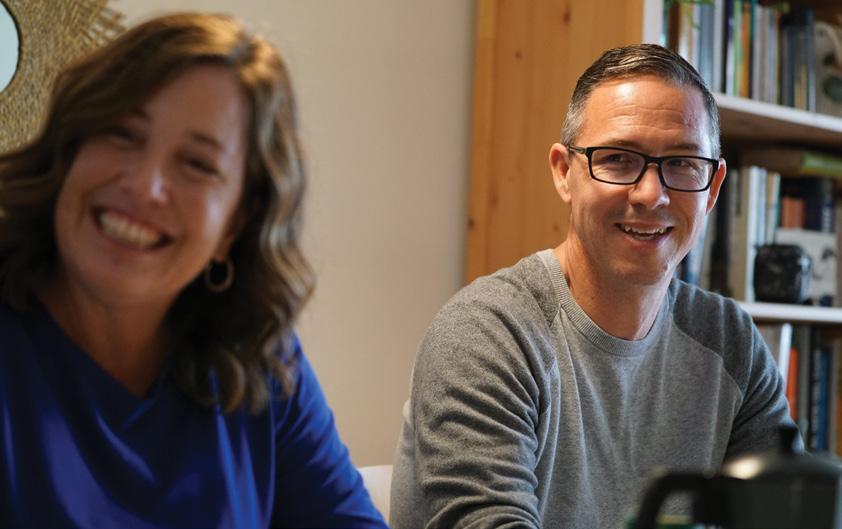
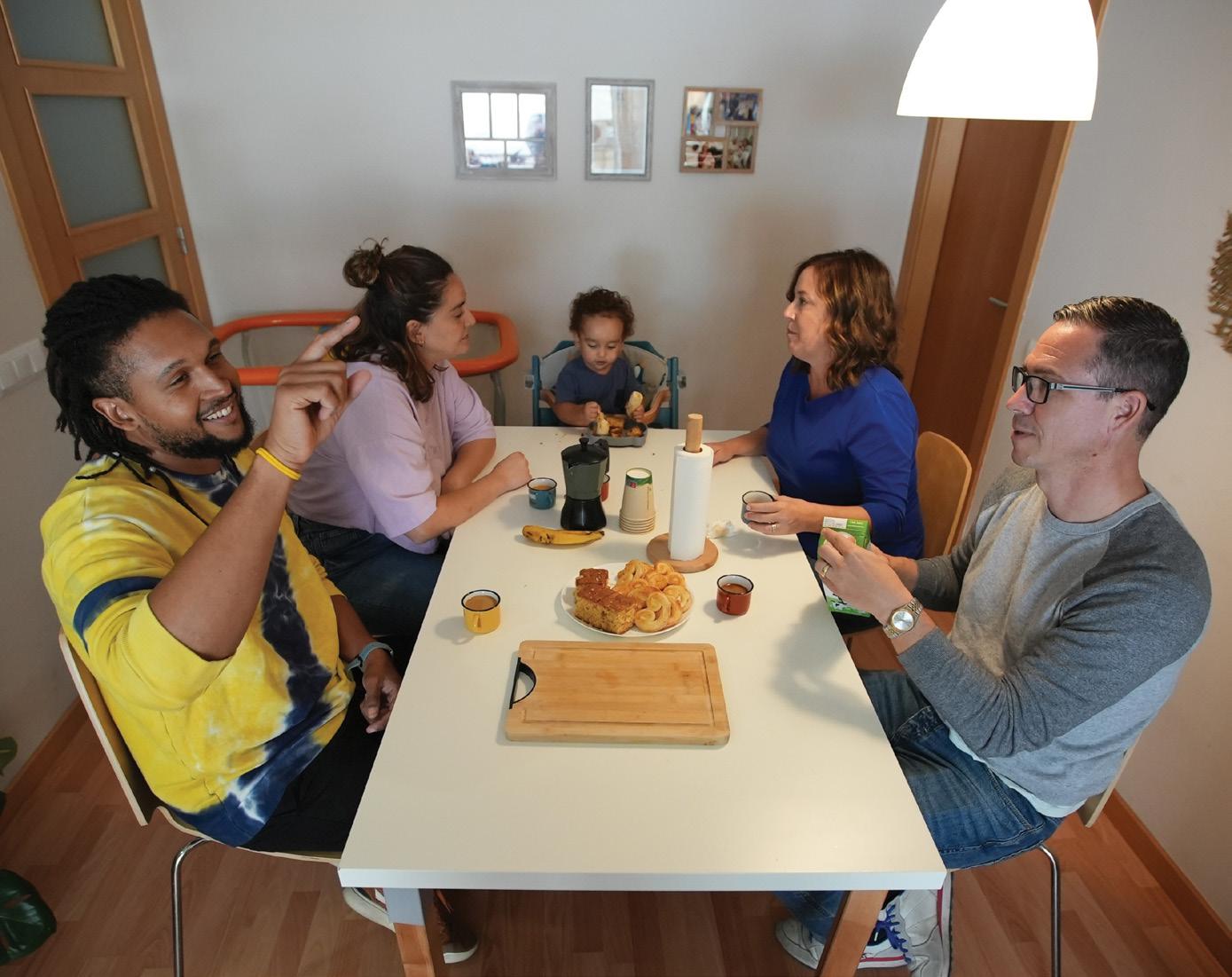
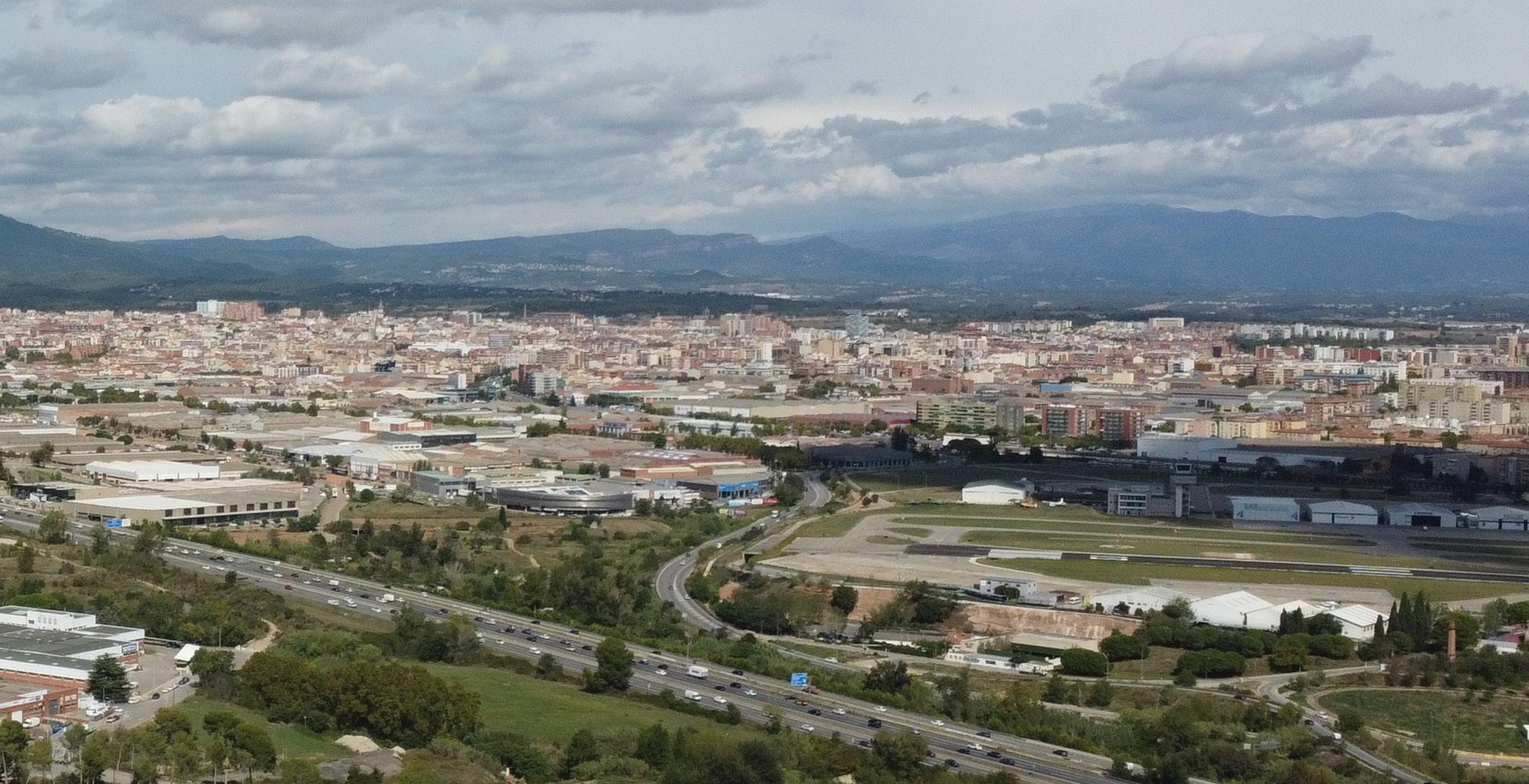
“Long-term commitment is extremely important,” Matt stressed. “We’ve been here 10 years now. It’s taken that many years to be able to speak the language in a way that we sound intelligent, and there’s so much more to learn. We’ve kind of scratched the surface of the importance of long-term relationships for building trust, being able to listen.
“And the longer you’re in a community, the more you start to understand the way that community sees the world. And you can start to understand that community more fully. Long-term presence allows your ministry to be more effective and actually start to bear fruit in ways you never could have imagined and take turns in ways you never could have expected.”
“My hope for the future here is that we encounter even more people who are wanting to engage this community, and we’re able to encourage them to do so,” Michelle said. “My hope is that whatever is built and done here engages the hopes and dreams of our friends here.
“That they can express the fullness of the gospel message in a way that walks alongside the vulnerable, that breaks down the barriers the church naturally puts up between it and the community. That they can develop a welcoming church for all people—that embraces the skepticism and doubt and says: ‘That’s OK. God is enough to handle it all.’”
TO CARE for mothers is to care for humanity. Michelle Norman and Elisabet Roca do their work in this sacred “Magnificat” tradition of Mary, mother of God.
“We started a program called Mamáventura,” explained Michelle. “It’s a ministry to immigrant moms and their children.”
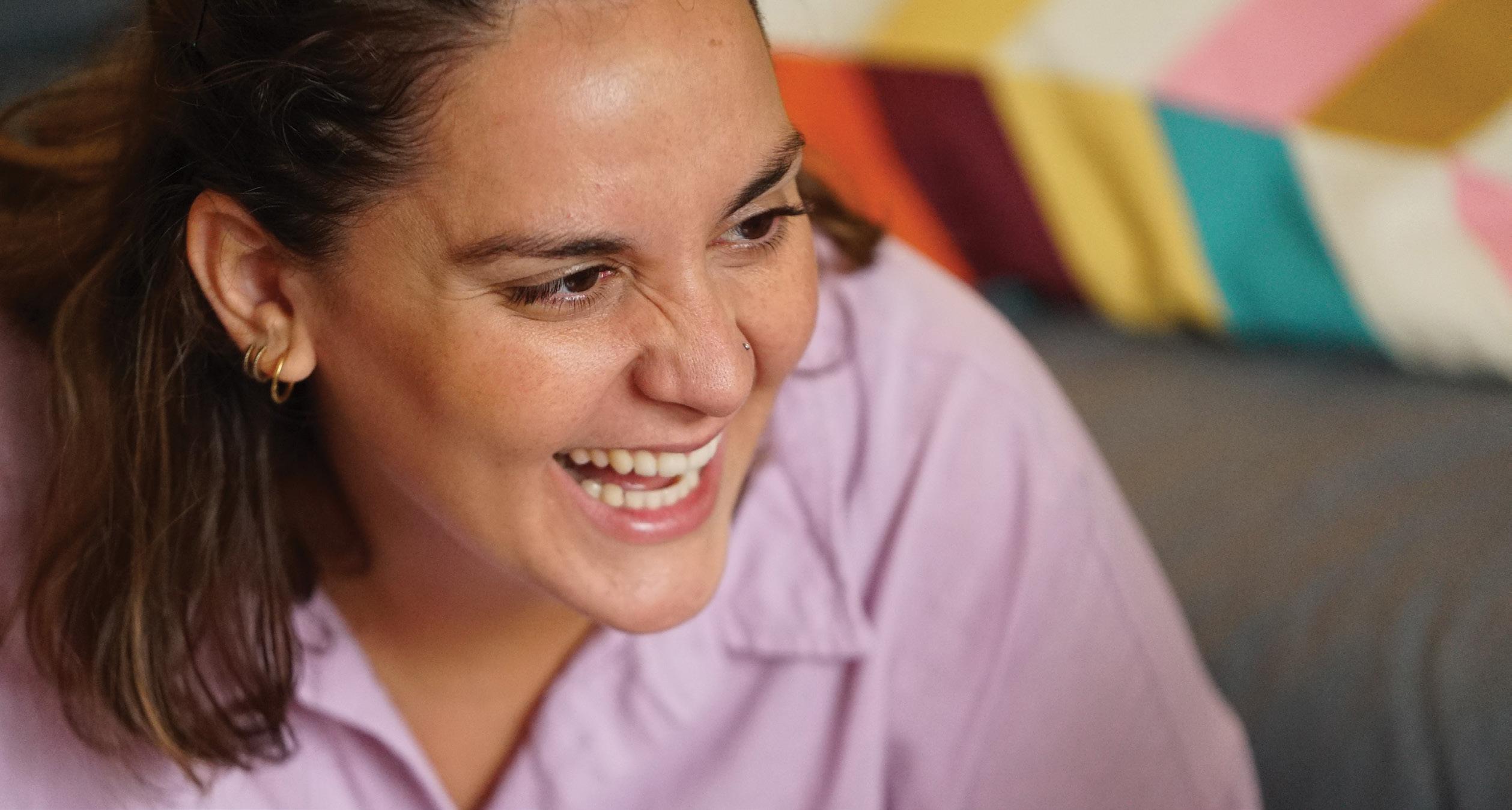
Stationed in Catalonia, Spain, CBF field personnel Michelle and Matt Norman partner with myriad locals and institutions to enact
the kind of presence-focused, equity-driven mission work that CBF endorses.
Elisabet “Eli” Roca is one such person. Eli, at 30 years old, may not have lived as much life as some of the people with whom she ministers. But her experiences, from growing up on the Mediterranean island of Menorca, to moving to England and studying theology, to returning to Spain (Sabadell, to be exact) and now working as the program director for Mamáventura—all have more than equipped her for the hard yet holy work of ministering to immigrant mothers.
Having recently become a mother—or, in her words, a “mum”—herself, it is a labor with which she resonates deeply and spiritually. “God is already at work in the life of each person, mother or child, before they come here,” she said.
Despite Spain ranking among the world’s top economies, poverty and need persist within its borders. Few people feel this as directly as the immigrant mothers who simply want to build a better life for their children. Inasmuch as they are truly the least of these,
“To be in community, to feel that we are with people who support us, who love us, who understand us and, at the same time, to be able to give to others and to be a part of this is a feeling of dynamic giving and receiving.”
they are most worthy of attention. Indeed, Mary was not only a mother, but a political refugee at that. In this work, in an area where money and nationality erect walls, justice and Kingdom citizenship construct doors.
“The parenting groups here in Spain are all private, charging a lot of money, and that is not realistic for immigrants,” Eli noted. “The mothers come for three hours, twice a week. And together, we give them a home and a community, providing them with some sense of stability.”
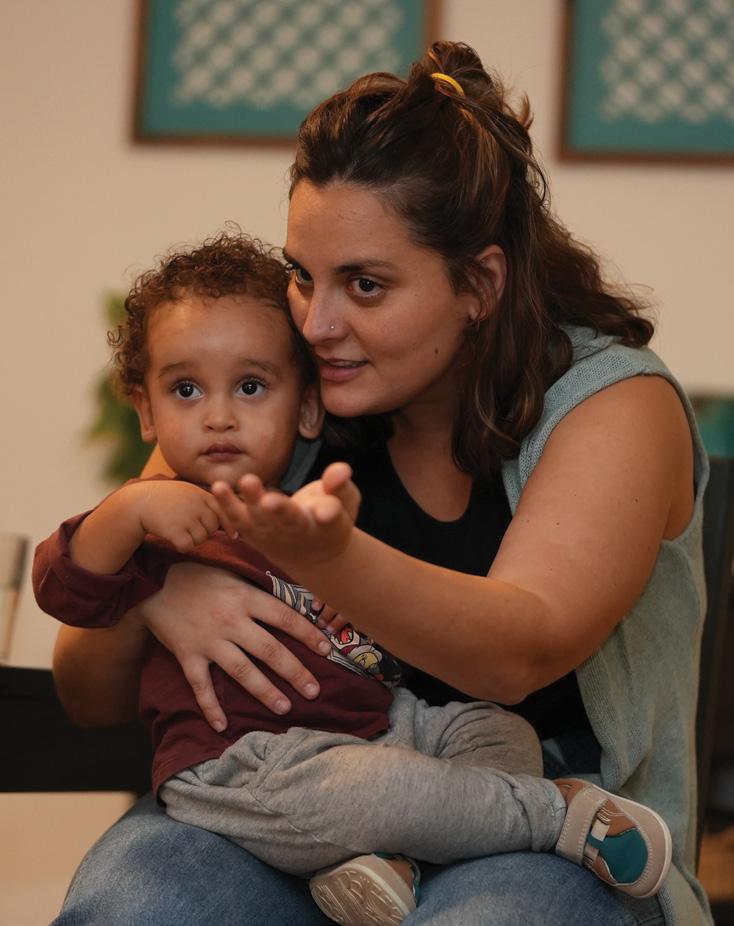
Making the mothers’ situations more precarious—and Eli’s work more crucial—is the prevalence of the abuse they suffer. “We have found with our most recent groups that the large majority of these women suffer in abusive relationships,” Michelle said. They experience political abuse at the hands of callous structures, but also suffer domestic abuse at the hands of misogynistic partners. These women carry with them children; they also carry trauma. Both situations must be addressed. And, in these circumstances, healing, as made plain by Celie in Alice Walker’s The Color Purple, sometimes begins with a curse.
Fighting against the systems and the people who have harmed these women begins with community. It begins with a
fostering of inner strength; a fomenting of dignity and inviolable beloved-ness lying latent within each of them.
“The strength that was already deep inside them has begun to bubble up,” Michelle said. “We’ve seen women be able to file police charges against their spouses and leave abusive situations and begin to live life on their own.”
Eli expounded, “Mothers who have been suffering abuse from their partners for years finally realize that they had to change things. And, together with the social services and support they have felt from us, they have dared to take that step.”
To mother is to embody a ministry of relentless presence. As a just means by which to do ministry, CBF too venerates mothers as models, as exemplars. Or, in other words, as people from whom we can learn much. And such learning cannot happen unless relationships are built. It’s what activists call “asset-based community development.” It’s what, arguably, Jesus calls the Gospel.
“All of that is based just on relationships, on walking alongside,” Michelle said. “We’re not giving things. We’re not giving money. We’re pointing out the strengths that these women already have within them and encouraging them.”
After all, the point of the Gospel is not mere charity. It is the business of justice. It is the relentless pursuit of wholeness within each person and among every community. It is expressed in something as simple as a hand held or a moment shared, an utterance of “you matter; you’re not alone.”
Eli might be the one providing this care, but she is cared for, too, by Michelle and Matt. “It impacted me to understand that someone appreciated us, that someone understood us, that the realization of our dreams was really possible and that our dreams were not nonsense, but really came from God,” Eli said. “To be in community, to feel that we are with people who support us, who love us, who understand us and, at the same time, to be able to give to others and to be a part this is a feeling of dynamic giving and receiving.”
And just as Mary revealed to the world the presence of Christ, caring for mothers— whether in Bethlehem or Barcelona, Nazareth or northeastern Spain—demonstrates the kind of world God seeks to build.
“God is most revealed in diversity, and diversity is in community,” Eli said. “A place where everyone is welcome.”
Michelle and Eli coordinate Mamáventura through a local Spanish nonprofit, Group 5-14. The name Group 5-14 comes from Galatians 5:14 which says this, “For the entire law is fulfilled in keeping this one command: ‘Love your neighbor as yourself.”
Community is at the heart of the work that Matt and Michelle Norman do in Catalonia. Living life together in community allows Michelle and Eli (pictured with her son) to not only minister together but grow from one another.
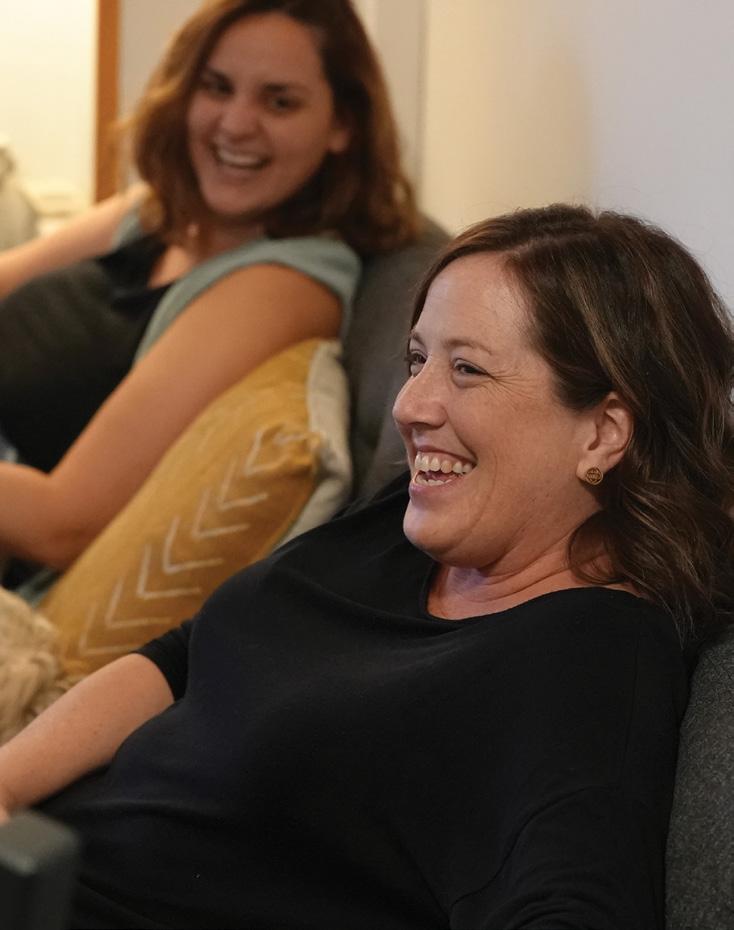
In worship and large group sessions, students were challenged to think differently about the Bible and scripture interpretation.
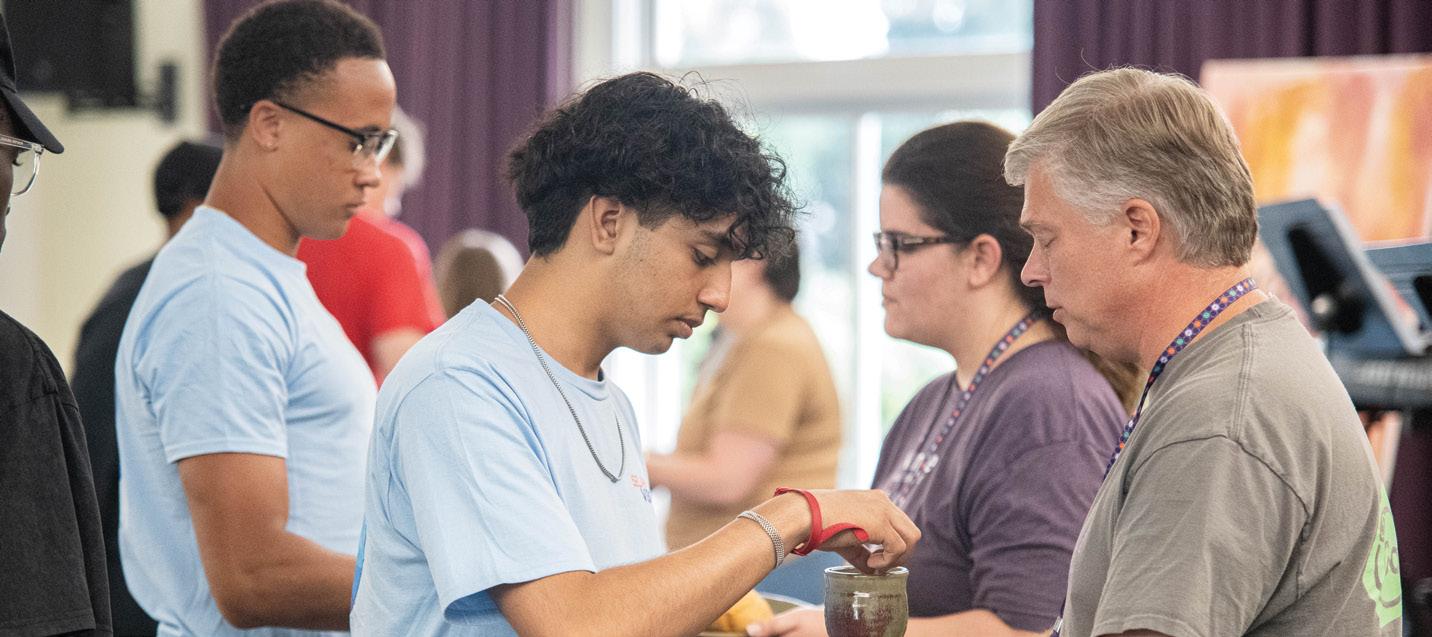
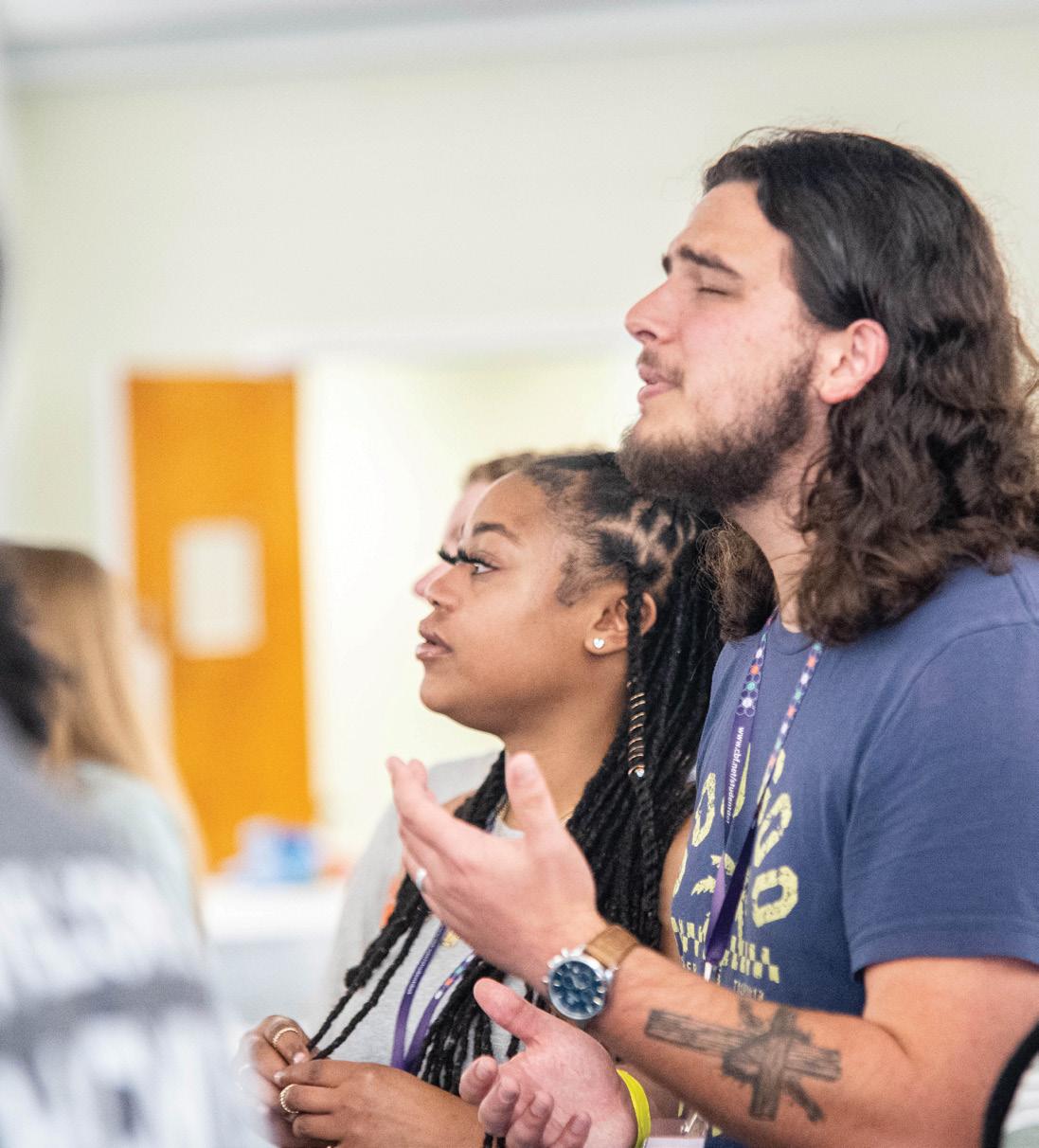
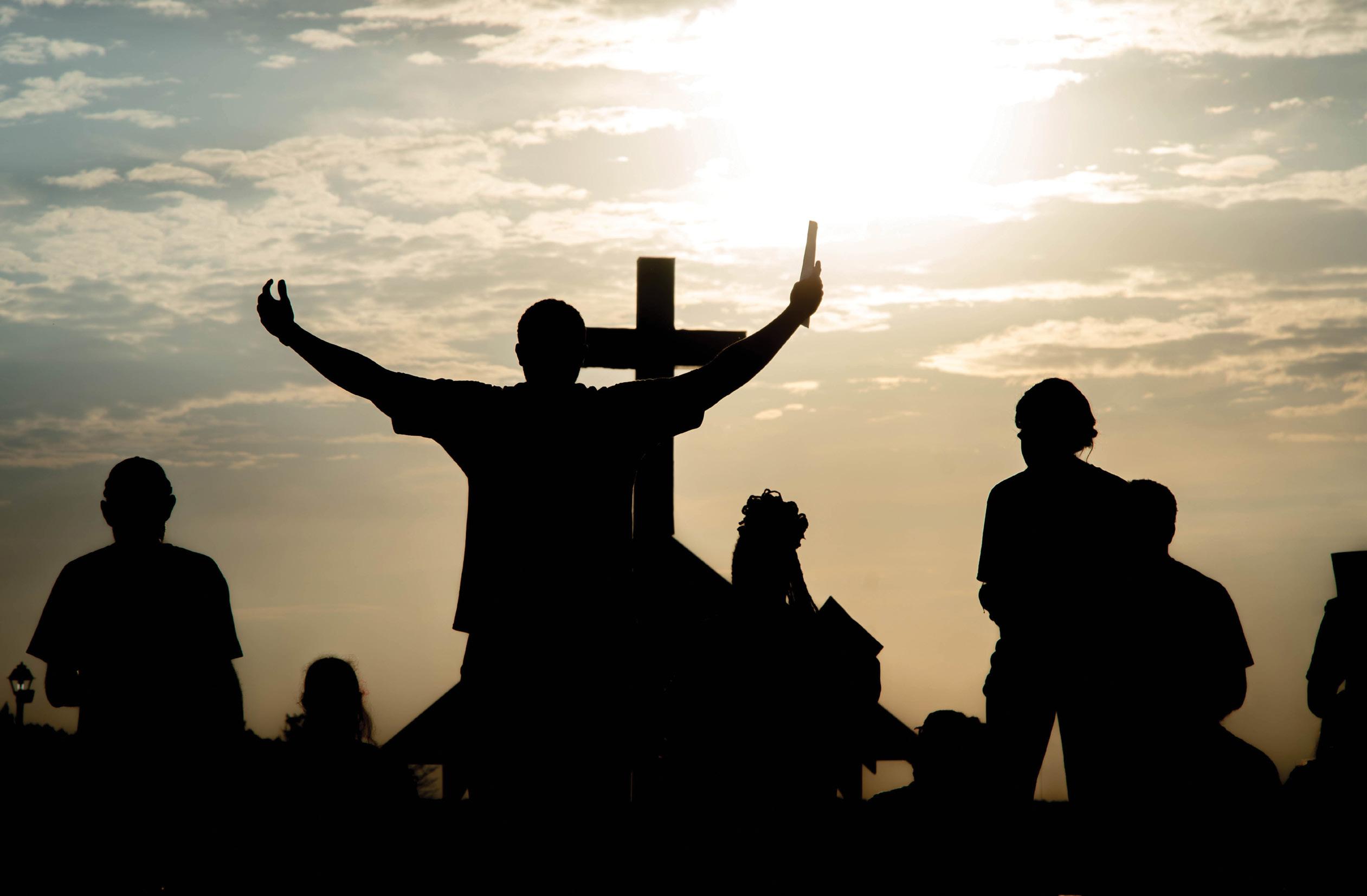
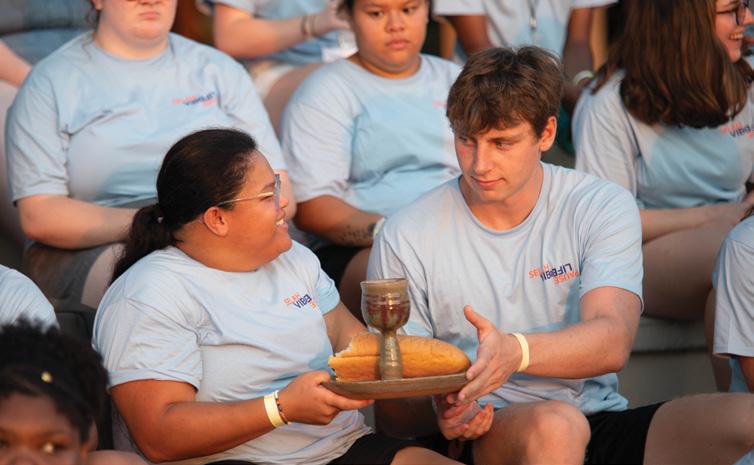

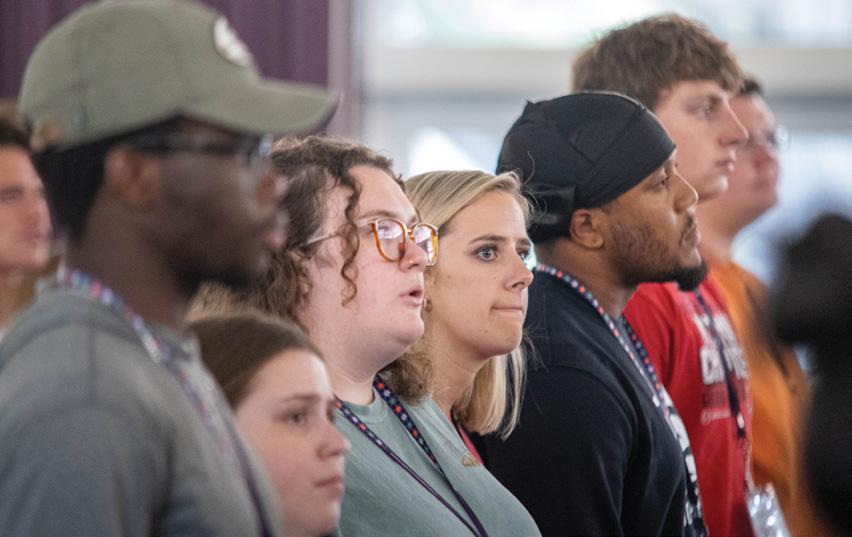
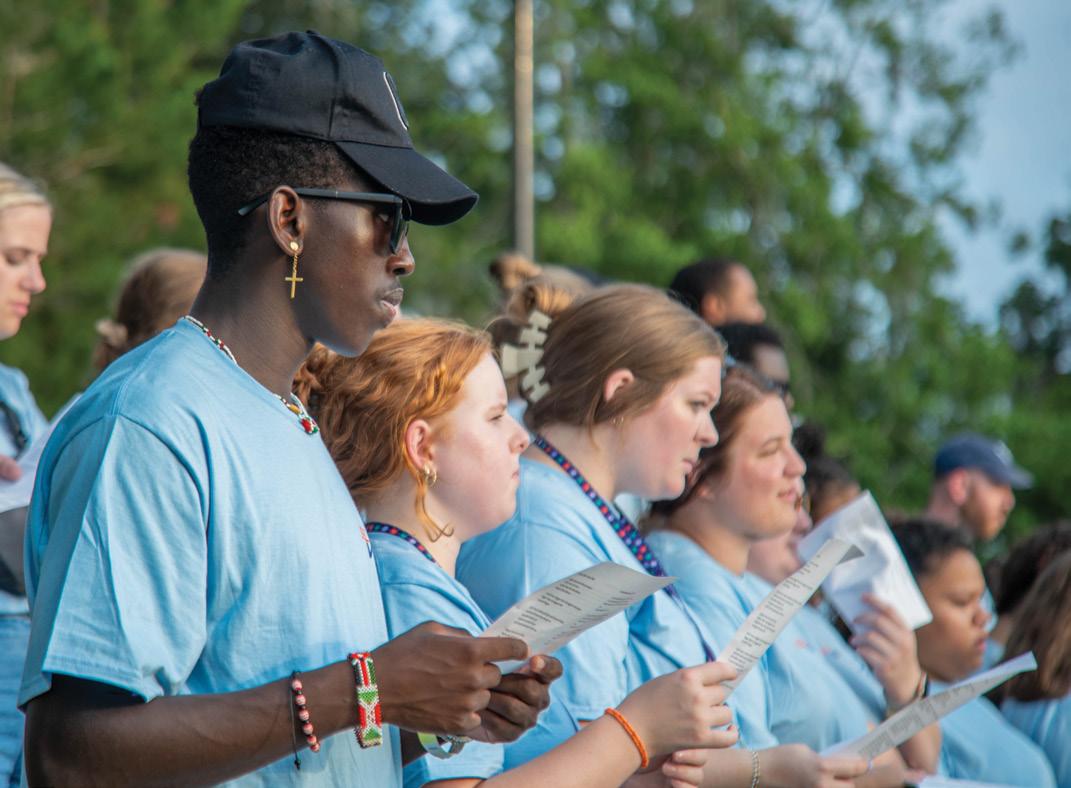
Young adults came together to participate in Selah Vie, August 1-4, in St. Simons Island, Ga. Selah Vie is the Cooperative Baptist Fellowship’s endof-summer retreat for undergraduate and graduate students of all ages (including seminary students) from across the country. It is an opportunity to hit pause on life to experience God through worship, small groups, workshops, nature and fun. It allows students to slow down, breathe deeply and catch up to their bodies—physically, emotionally, mentally and spiritually. Students also have the opportunity to meet and network with CBF ministry leaders.
Selah Vie’s theme for 2023 challenged students on how God’s love is far higher than they can imagine, far deeper than they can comprehend and stretches farther than Earth’s horizons and far wider than the endless ocean. Students were invited to lead in worship services and add their photos of God’s higher, deeper, farther and wider love to large canvases displayed during worship.
Students were also taught about the complexity of the Bible in large group sessions led by co-speakers, Jennifer Bashaw and Joshua James. Bashaw is an associate professor of New Testament and Christian Ministry at Campbell University in Buies Creek, N.C., and an ordained minister in American Baptist Churches, USA. James is a CBF-ordained minister and pastor of The Restoration Project in Salisbury, Maryland. He is also an adjunct professor of Old Testament at Fuller Theological Seminary. By recognizing their biases and assumptions about the Bible, students found that God’s love is much higher, deeper, farther and wider than they could ever imagine.

Beginning as strangers, students become friends after a summer of service.

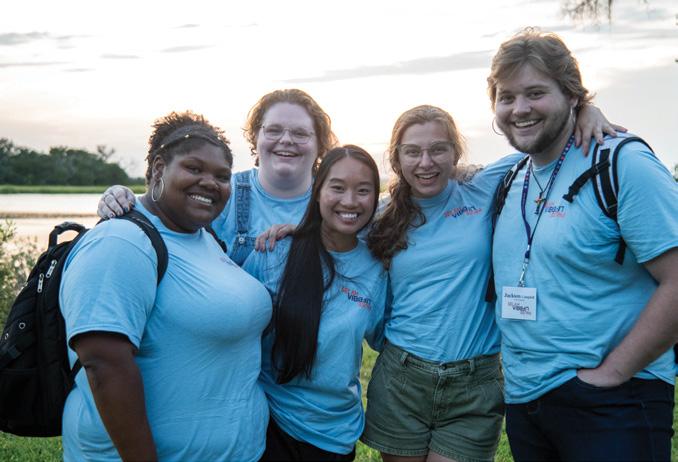
“We are community; so come eat, listen, pause and rest.”
Brand-new discussion guides with compelling subjects and authors

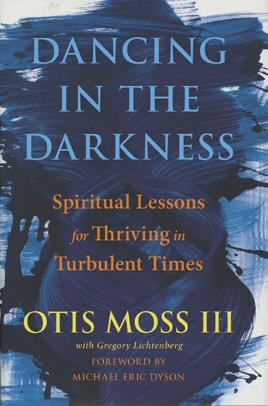
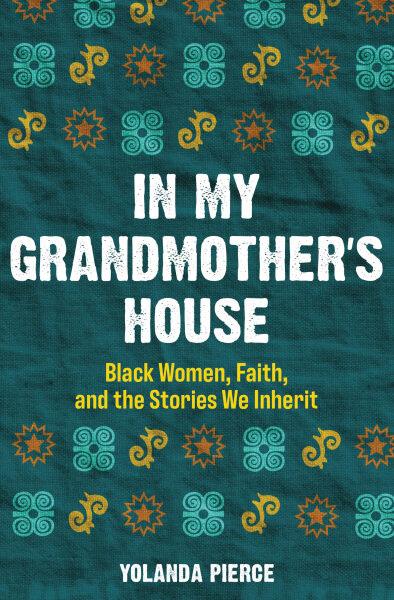
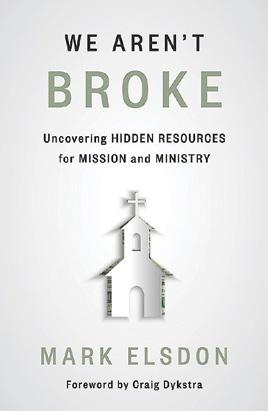
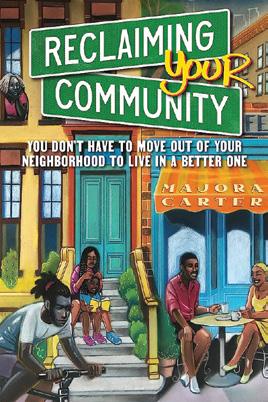
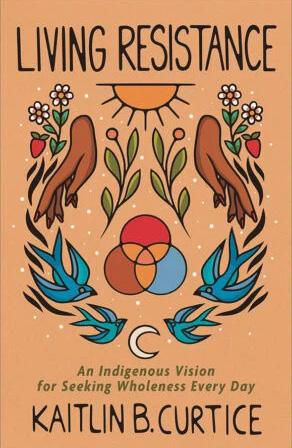

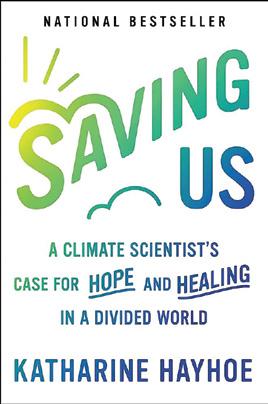
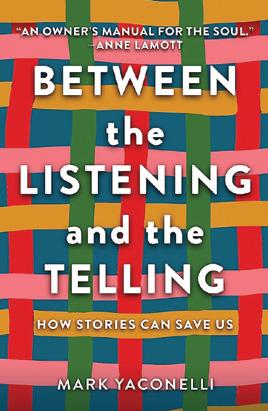
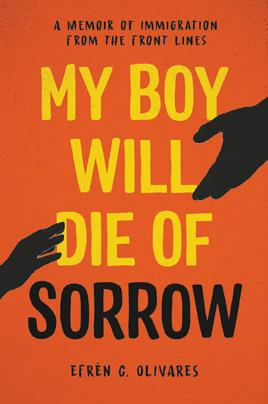
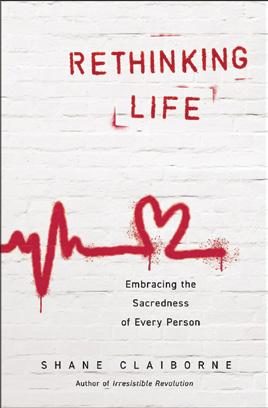



Download at www.cbf.net/sacredspaces
CBF published Volume 1 of Sacred Spaces in 2022, highlighting creative ways seven partner churches use their facilities and property. In Volume 2, four additional case studies are available, sharing both the sacredness and challenges of church campuses. It includes a helpful group discussion guide and an analysis of the characteristics of churches pursuing these innovative opportunities.
For more information, contact Rickey Letson, CBF Congregational Stewardship Officer, at rletson@cbf.net
Likemany churches, over the past several decades, Willow Meadows Baptist in Houston has seen an ongoing decrease in attendance at its services, Bible studies and other church events. According to the church’s senior minister, Craig Taylor, the congregation averages 80 people in person and another 40 online on a typical Sunday. What makes this even more challenging is that the church worships in a sanctuary that seats well over 1,000 people. Beyond the sanctuary, the sprawling Willow Meadows campus includes a fellowship hall, library, full gym and separate education building.
Because of its significant real estate, Willow Meadows has long been a believer in sharing its facilities with the community while also generating extra revenue through these relationships when possible. This stewardship of space has led Willow Meadows to welcome other area congregations into its building. The church has also become the physical home of Braes Interfaith Ministries which offers financial support, food, clothing and other services to persons from select ZIP codes in Southwest Houston.
The church’s education building houses two of the organizations that share space on the Willow Meadows campus. Houston Graduate School of Theology and Avondale Autism School both occupy entire floors that were once used for church Sunday school and discipleship activities.
The overall creative space usage by Willow Meadows Baptist is remarkable. Between the congregations, the three nonprofits, special event rentals and gym rentals, the revenue generated makes up
roughly a third of the church’s operating budget.
Amidst the amazing work done by Willow Meadows in the approach to its campus, what might be one of the most intriguing elements of the story is how the Avondale Autism School became one of the groups housed at Willow Meadows.
In 2021, as the pandemic continued to hold much of the world in its grip, the Houston Graduate School of Theology began to shift how it delivered its suite of educational services. In essence, like so many other graduate level academic institutions, the school began to move to more of an online format, which greatly reduced the amount of square footage needed on the Willow Meadows campus.
As much as the church wanted to be supportive and understanding, there were significant challenges for the church with the pivot the school wanted to make. First, the school was early into a five-year contract to use two floors of the church education building, and the new plan required only one floor of the building. Second, as previously mentioned, the church had more and more of its revenue coming from their various space usage agreements such as the one with the theology school. The desire of the theology school to cut its space needs in half was a significant blow to the church’s anticipated revenue based on the five-year contract the two had signed.
This all led the church to make a very aggressive yet unusual decision. Rather than passively wait for other rental opportunities to come their way or even to
Reimagining Church Property and Facilities as Assets
quietly self-market the space by word of mouth or via social media, the church chose to be proactive. Willow Meadows Baptist leadership made the unique decision to hire a commercial real estate agent to market the space in hopes of finding a new, nonprofit renter for the floor of the education building soon to be vacated by the theology school. This was new territory for both the church and for the realtor. Yet, the church was banking on the idea that the realtor could dramatically expand their pool of potential clients. They also felt that even though the church would have to pay a commission on any deal, the benefits would far outweigh the costs.
The decision was a remarkable move for everyone involved. For the church, it was able to expand its reach and to offer the property at a competitive rate. For the agent, the decision offered the opportunity to market a nice piece of property that far exceeded the realtor’s expectations when first contacted by the church as a potential client. For the Avondale Autism School, the strategy brought the Willow Meadows property to its attention and afforded the school the chance to rent the space at a fee that was on the lower end of the area’s average market rate.
The entire process from first contact with the realtor until Avondale moved into its new facility at Willow Meadows was certainly not
from Sacred Spaces, Innovative
Excerpted
an overnight endeavor. According to Rev. Taylor, the first meetings with the realtor happened in May 2021. In December 2021, Avondale gave verbal commitment of their desire to rent the space. During January and February 2022, further details were worked out and some remodeling was done. In March 2022, the church had a signed contract in hand from Avondale. In April of that year, the autism school finally moved into the building as a long-term renter.
Not only did the process require patience, but Willow Meadows also had to be willing to play the long game as it related to the revenue to be generated from Avondale. This was true for two reasons. First, there were upgrades required for the space to fit Avondale’s needs. Through negotiations, Willow Meadows agreed to split those costs with the autism school. Second, the realtor’s fees would need to come out of the initial months of rent that was generated. Fortunately, since the church was able to broker a five-year contract with Avondale there was a strong sense that the initial costs to the church would be far outpaced by the income that would come to the church over time.
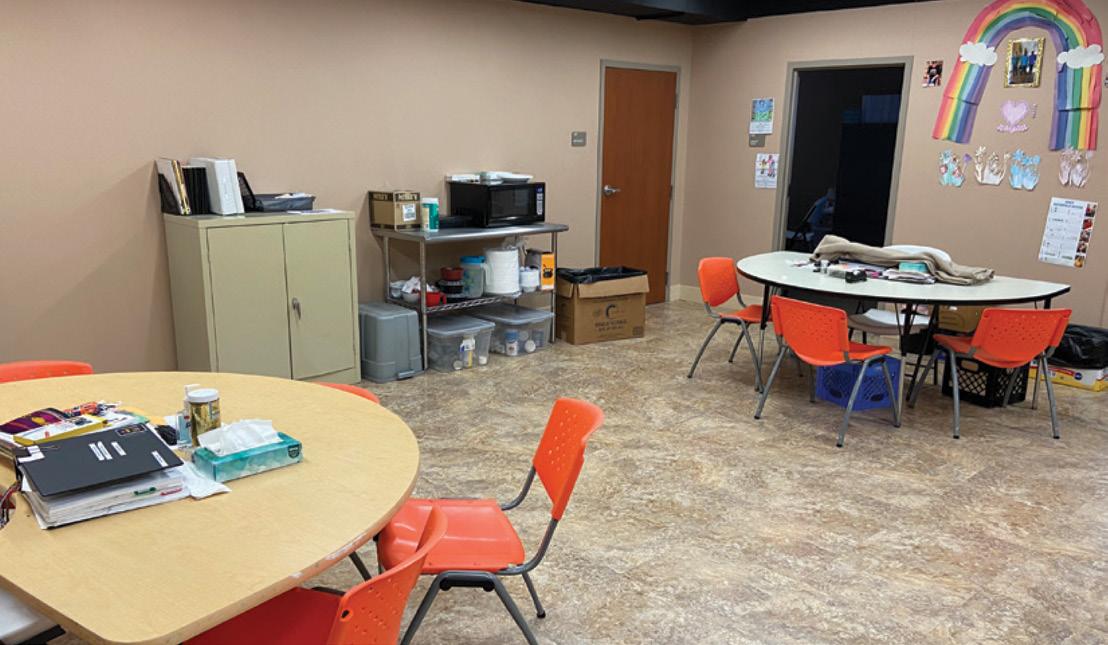
Beyond the expertise of its commercial realtor, Willow Meadows was also led in the process by several key lay leaders including the church facilities chair, the church finance chair, a church member who is an attorney and a member of the congregation
who works in commercial real estate. This team helped take a lot of the load of decision making off the shoulders of Taylor while representing the church wisely in conversations with both Avondale and with the hired realtor.
In talking with Taylor about both the strategic decision that brought Avondale Autism School to the Willow Meadows Baptist property and the other creative decisions the church has made in how it has chosen to share space, he points out four lessons learned that are helpful for any congregation doing this type of work.
First, he emphasizes the importance of clarity. Any time a church decides to share space with an outside group, both sides need to have a clearly defined understanding of who is responsible for all elements of the planned space usage.
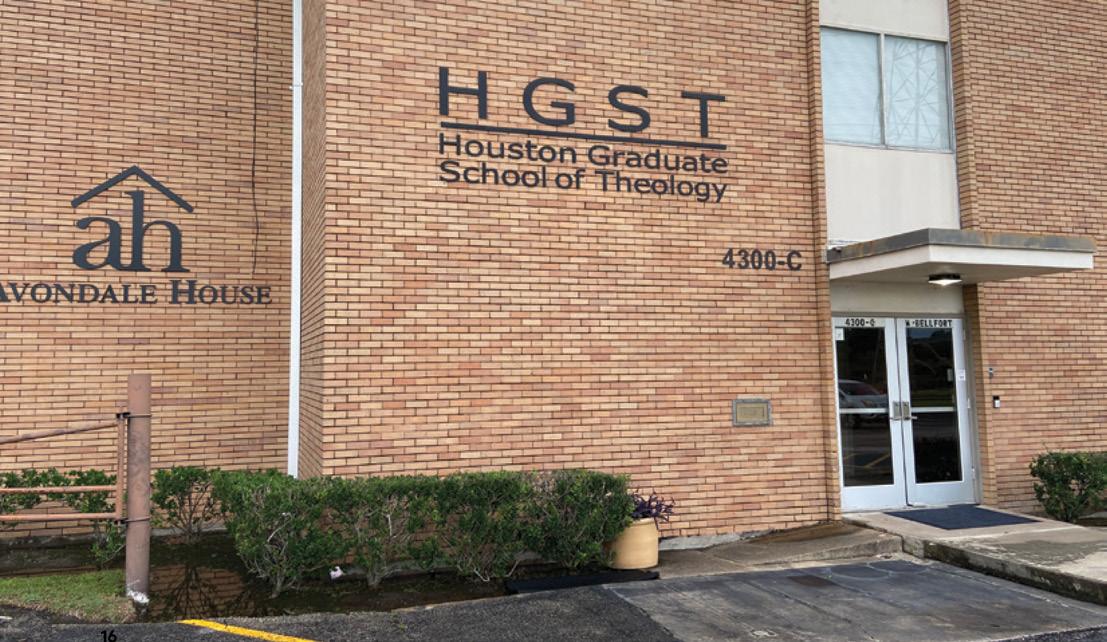
Second, Taylor points out that from their experience at Willow Meadows, the best opportunities for space usage come when you can share sections of the building that don’t need to be used by the church too. If the church has segments of the property that can be made available exclusively to an outside group, this is the best-case scenario for the consideration of monetizing.
Third, the key to any of these arrangements is having a desire to build a good relationship. Outside groups that use space in congregations are not tenants. They are colleagues, friends and often fellow laborers in Kingdom work.
Fourth, having a good facilities team and lay leadership that can oversee these outside relationships is a best practice for all churches wanting to do this type of work.
After all, the ministerial staff often has no expertise in property management. The church’s ministers also have full-time jobs on which the congregation has called them to focus. So, having a team in place who can guide and oversee the creative use of the churches facilities alleviates this burden from the ministry staff. It also gives laity that have expertise in these areas the chance to use their gifts for the good of the church. This isn’t to say that the ministry staff will be completely disconnected from this work, but there should be a clear understanding of what this looks like and where the ministers can be most useful in this element of church life.
To these four lessons, we would add a fifth lesson that is drawn directly from the story of Willow Meadows. So often, churches do minimal work when marketing their space. They either wait for an opportunity to come their way, work through a word-ofmouth system or advertise lightly through church publications or social media. Yet, a more robust, proactive strategy to market space such as the one employed by Willow Meadows is certainly worth considering. After all, as is illustrated through this story, it can be the path to long-term, substantial opportunities that benefit both the church and the outside group in ways neither could have imagined.
Inone of the most polarized corners of the country, Agustín Quiles is uniting Latino Christians in Florida to serve God and advocate for social justice. Latino Christians are the fastest growing group of evangelicals in the country; but in 2016, cultural currents were pulling the community apart. Young people were leaving the Hispanic church for well-resourced white churches.
“Their narrative is that they don’t fit in the churches they grew up in,” Quiles said. To help young Latino leaders discover what it looks like to live out the Gospel in a Hispanic context, Quiles founded Mission Talk.
As many as 600 Christian leaders under the age of 40 have gathered annually at the Mission Talk forum to connect with God and one another. While there, they also connect with their Latino heritage through music, dance and storytelling.

“God made us Latino for a purpose, and reinforcing their identity as Latinos is crucial and key to this conference,” Quiles explained. The Latino church is a unique expression of the Body of Christ, so Mission Talk looks to Latino experts to raise awareness, educate and mobilize leaders.
Mission Talk began first and foremost as a way to bring awareness to social justice issues to Latino Christians in Florida.
“Most Latino evangelicals have simply not been exposed to critical policy issues related to things like poverty, racism, violence, mass incarceration and immigration,” said Rubén Ortiz, CBF’s Latino field ministries coordinator, who also serves on the advisory council of Mission Talk. “Agustín gets them to question the Church’s role and responsibility in addressing these issues.”
Quiles himself is no stranger to the challenges faced by the Latino community.
Born in Puerto Rico and raised by a single mother, he moved to New York City as a child with his four siblings. This experience, and his early involvement with the Church, influenced his desire to make a difference.
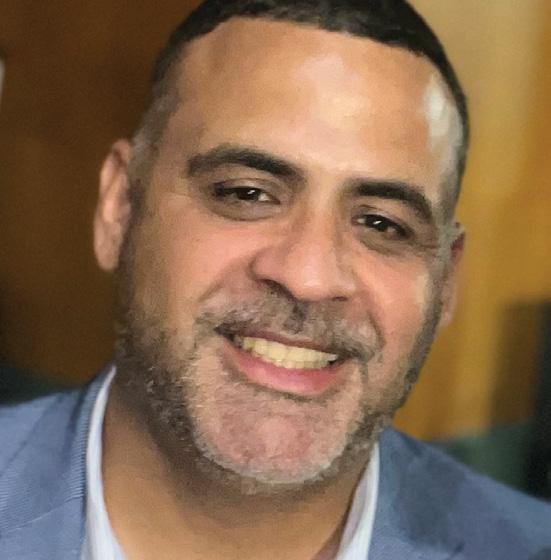
“Quiles embodies a unique combination of advocacy and action for the people Jesus called ‘the least of these.’ He is a seeker after justice for those oppressed by systemic racism and for those who do not have a voice to request justice for themselves, especially for ethnic minorities,” said Elket Rodríguez, who serves as CBF field personnel on the United States-Mexico border.
To help Mission Talk participants learn more about the issues affecting the Latino community, the organization launched a six-week Community Transformation Cohort in 2019. As of 2022, more than 500 church leaders have received introductory training and 300 have completed the full course. “We
bring in practitioners, not celebrities,”
Quiles said
Experts in poverty, hunger, immigration, mass incarceration, human trafficking, social entrepreneurship, ethnic diversity and racial reconciliation tailor their instruction to address the needs in each cohort’s community. Once the six-week session is finished, Mission Talk selects a few interested individuals to become part of a four-month program on advocacy and organizing. Recently he launched the “Justice Leadership Development for Community Transformation,” a training program designed to launch sustainable justice-oriented ministries within Latino churches. “They learn to mobilize their churches, denominations and institutions to press lawmakers for policy change,” Ortiz said.
Quiles is a prophetic voice for those seeking justice in Florida, where he has organized churches to demonstrate for the
restoration of voting rights to 1.4 million Floridians with felony convictions. He also mobilized 500 Latino evangelical pastors in a march in memory of George Floyd and to protest against police violence.
“If we as leaders don’t speak up publicly against injustices, we are irrelevant to this generation,” he said. “We can’t say we love our communities and stay quiet when members of our communities are brutally killed by law enforcement.”
Another issue dear to Quiles’ heart is immigration. In 2022, he led 230 Hispanic clergy members in a “Day of Action” at the Florida statehouse to rally against the governor’s anti-immigration legislation.
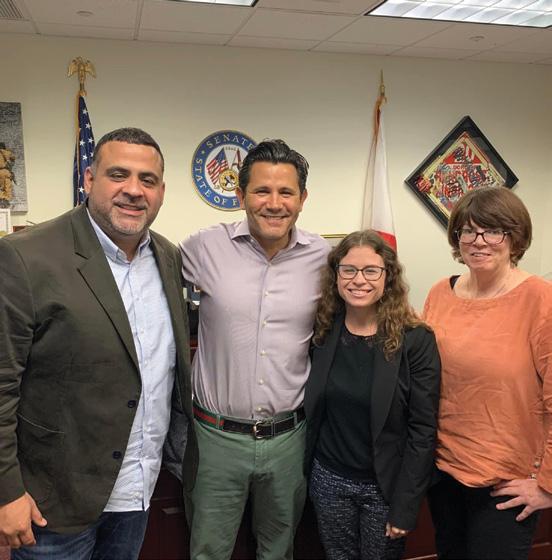
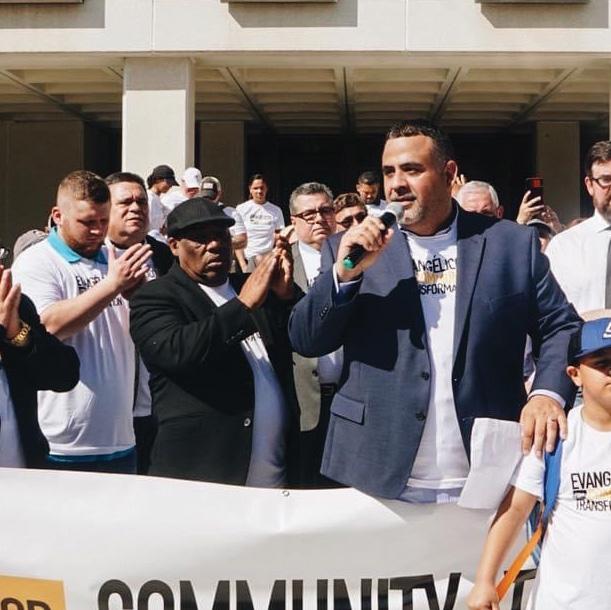
In 2023, he again led 300 faith leaders against one of the worst anti-immigration, criminal justice and death penalty bills.
“For us, it’s personal. It’s our church members; it’s children,” Quiles emphasized.
“We did actually kneel down in front of the Capitol, and we sang worship songs and we prayed.”
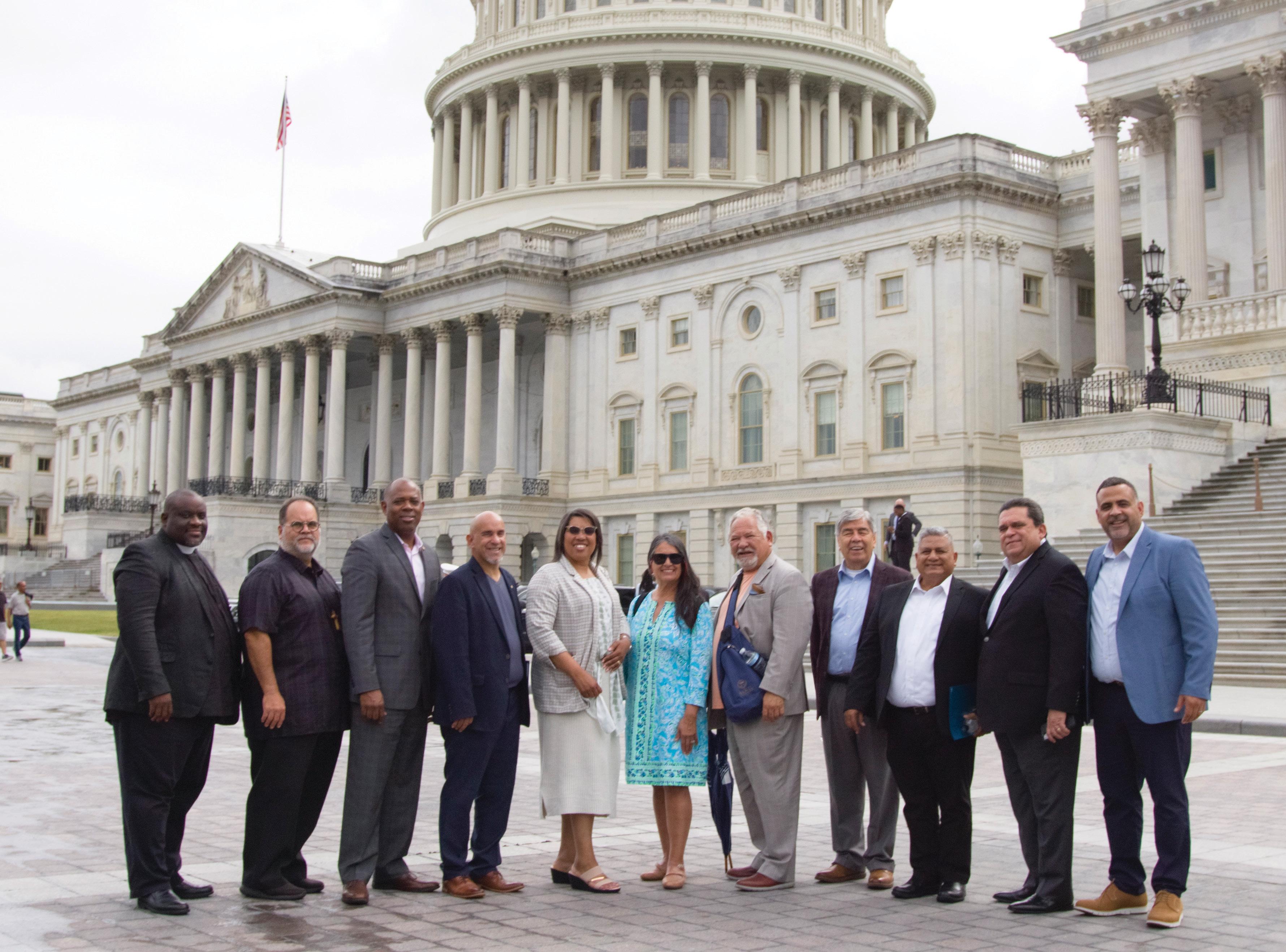
For his social justice work, Agustín Quiles received the Dr. Emmanuel McCall Racial Justice Trailblazer Award in June at the 2023 CBF General Assembly in Atlanta.
“His passion for the Kingdom, his intention to create unity and consensus, and his love for God’s justice to be established are inspiring and transformative,” Ortiz said. Rev. Carlos Malavé, executive director for the Latino Christian National Network, who also serves on the advisory council of Mission Talk, agrees. “What Mr. Quiles is accomplishing in Florida is nothing short of a miracle. Some have called it a spiritual revival, and this movement is barely starting!”
Watch a video to learn more about Agustín Quiles and the McCall Racial Justice Trailblazer Award at www.cbf.net/mccall.
Enuno de los rincones más polarizados del país, Agustín
Quiles está uniendo a los cristianos latinos en Florida para servir a Dios y abogar por la justicia social. Este grupo de evangélicos son el de más rápido crecimiento en el país; pero en 2016, las corrientes culturales estaban separando a la comunidad. Los jóvenes estaban dejando la iglesia hispana por iglesias blancas con buenos recursos.
“Su narrativa es que no encajan en las iglesias en las que crecieron”, dijo Quiles. Para ayudar a los jóvenes líderes latinos a descubrir cómo es vivir el Evangelio en un contexto hispano, Quiles fundó Mission Talk.
Hasta 600 líderes cristianos menores de 40 años se han reunido anualmente en el foro Mission Talk para conectarse con Dios y entre sí. En su tiempo juntos también se conectan con su herencia latina a través de la música, el baile y la narración de historias.
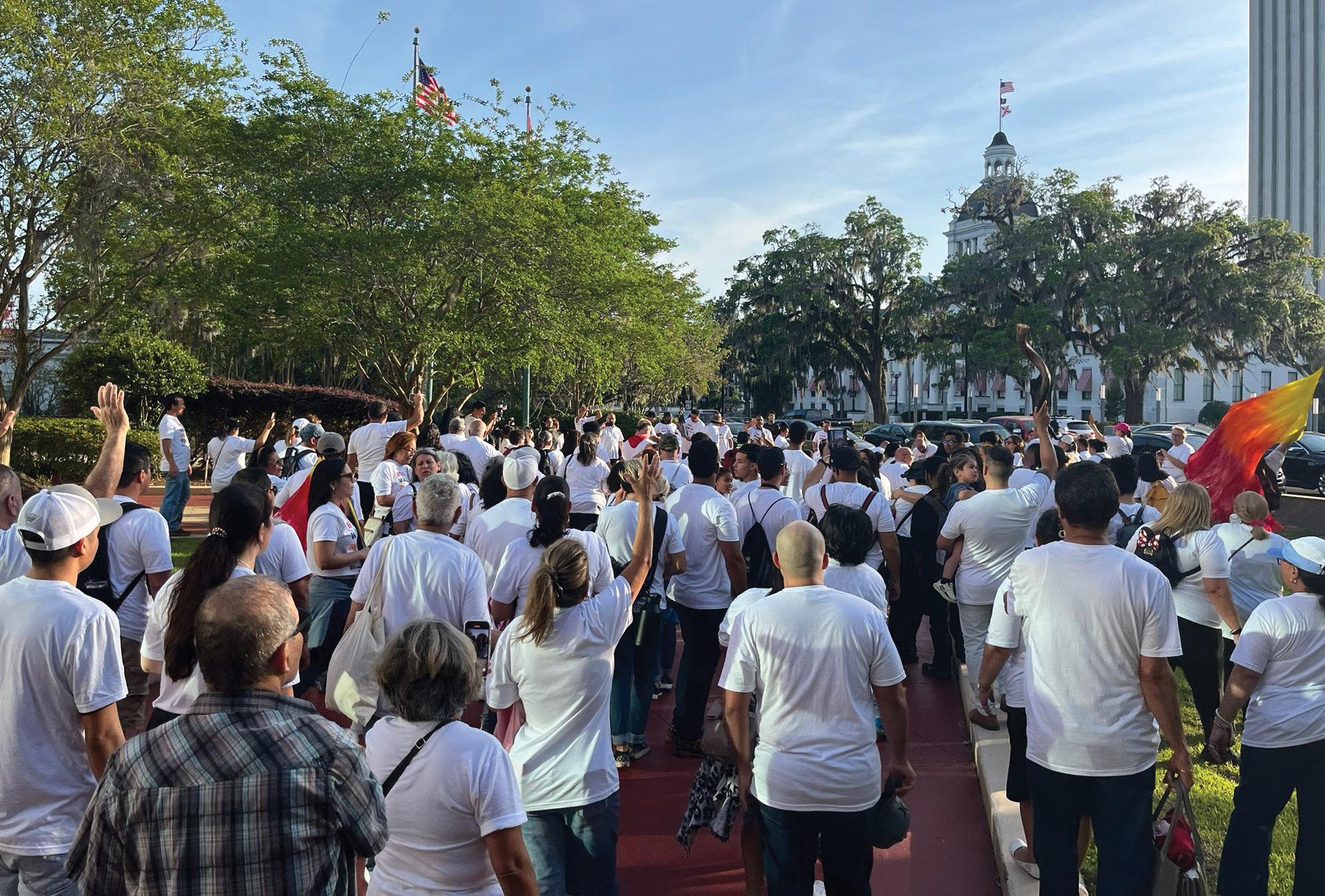
“Dios nos hizo latinos con un propósito, y reforzar su identidad como latinos es crucial
y clave para esta conferencia”, explicó Quiles. La iglesia latina es una expresión única del Cuerpo de Cristo, por lo que Mission Talk recurre a expertos latinos para crear conciencia, educar y movilizar a los líderes.
Mission Talk comenzó ante todo como una forma de crear conciencia sobre los problemas de justicia social en los cristianos latinos de Florida.
“La mayoría de los evangélicos latinos simplemente no han estado expuestos a cuestiones políticas críticas relacionadas con cosas como la pobreza, el racismo, la violencia, el encarcelamiento masivo y la inmigración”, dijo Rubén Ortiz, coordinador de Ministerios de Campo Latinos del Compañerismo Bautista Cooperativo (CBF), quien también sirve en el Consejo Asesor de Mission Talk. “Agustín hace que cuestionen el papel y la responsabilidad de la iglesia al abordar estos problemas”.
El propio Quiles no es ajeno a los desafíos que enfrenta la comunidad latina. Nacido en Puerto Rico y criado por una madre soltera,

se mudó a la ciudad de Nueva York cuando era niño con sus cuatro hermanos. Esta experiencia, y su temprana participación en la iglesia, influyeron en su deseo de hacer una diferencia.
“Quiles encarna una combinación única de defensoría y acción para las personas que Jesús llamó ‘los más pequeños’. Es un promotor de justicia para aquellos oprimidos por el racismo sistémico y para aquellos que buscar tener voz para pedir justicia para sí mismos, especialmente para las minorías étnicas”, dijo Elket Rodríguez, quien se desempeña como personal de campo de CBF en la frontera entre Estados Unidos y México.
Para ayudar a los participantes de Mission Talk a aprender más sobre los problemas que afectan a la comunidad latina, la organización lanzó una cohorte de transformación comunitaria de seis semanas en el 2019. A partir de 2022, más de 500 líderes de la iglesia han recibido capacitación introductoria y 300 han completado el curso completo. “Traemos practicantes, no
celebridades”, dijo Quiles.
Expertos en pobreza, hambre, inmigración, encarcelamiento masivo, trata de personas, emprendimiento social, diversidad étnica y reconciliación racial adaptan su instrucción para abordar las necesidades en la comunidad de cada cohorte. Una vez finalizada la sesión de seis semanas, Mission Talk selecciona a algunas personas interesadas para formar parte de un programa de cuatro meses sobre defensa y organización. Recientemente lanzó el “Desarrollo de Liderazgo de Justicia para la Transformación de la Comunidad”, un programa de capacitación diseñado para lanzar ministerios sostenibles orientados a la justicia dentro de las iglesias latinas. “Aprenden a movilizar a sus iglesias, denominaciones e instituciones para presionar a los legisladores por cambios en las políticas”, dijo Ortiz.
Quiles es una voz profética para aquellos que buscan justicia en Florida, donde ha organizado iglesias para manifestarse por
la restauración de los derechos de voto a 1.4 millones de floridanos con condenas por delitos graves. También movilizó a 500 pastores evangélicos latinos en una marcha en memoria de George Floyd y para protestar contra la violencia policial.
“Si nosotros, como líderes, no hablamos públicamente contra las injusticias, somos irrelevantes para esta generación”, dijo. “No podemos decir que amamos a nuestras comunidades y permanecer callados cuando los miembros de nuestras comunidades son brutalmente asesinados por la policía”.
Otro tema muy querido para Quiles es la migración. En 2022, dirigió a 230 miembros del clero hispano en un “Día de Acción” en la cámara estatal de Florida para manifestarse contra la legislación antiinmigración del gobernador. En 2023 volvió a liderar a 300 líderes religiosos contra uno de los peores proyectos de ley contra la inmigración, la justicia penal y la pena de muerte. “Para nosotros, es personal. Son los miembros de nuestra iglesia; son niños”, enfatizó



Quiles. “De hecho, nos arrodillamos frente al Capitolio, hicimos cánticos de adoración y oramos”.
Por su trabajo de justicia social, Agustín Quiles recibió el Premio Dr. Emmanuel McCall Racial Justice Trailblazer en junio en la Asamblea General de CBF 2023 en Atlanta.
“Su pasión por el Reino, su intención de crear unidad y consenso, y su amor por que se establezca la justicia de Dios son inspiradores y transformadores”, dijo Ortiz. El reverendo Carlos Malavé, director ejecutivo de la Red Nacional Cristiana Latina, quien también forma parte del Consejo Asesor de Mission Talk, está de acuerdo. “Lo que el Sr. Quiles está logrando en Florida es nada menos que un milagro. Algunos lo han llamado un avivamiento espiritual, ¡y este movimiento apenas está comenzando!”
Vea un video para obtener más información sobre Agustín Quiles y el Premio McCall Racial Justice Trailblazer en www.cbf.net/mccall
En 2022 y 2023, Quiles lideró a cientos de líderes religiosos hispanos que se manifestaron en contra de la legislación antiinmigrante en Florida. El pasado mes de junio, la Red Panafricana Koinonia de CBF honró a Quiles con el Premio Dr. Emmanuel McCall como un Pionero de la Justicia Racial durante la Asamblea General en Atlanta.
160 Clairemont Avenue, Suite 500
Decatur, GA 30030
www.cbf.net
(800) 352-8741
EXPLORE ALTERNATIVE WAYS TO SUPPORT CBF
While cash donations are appreciated, they may not always be the most convenient or beneficial way for you to give. Here are several other ways you can contribute to our mission.
Donating stocks or other appreciated assets can be a tax-efficient way to give. If you’ve held the assets for over a year, you can deduct their full fair market value, rather than their cost basis, on your tax returns. Additionally, you avoid paying capital gains tax on the appreciation, which can be significant.
If you are 70½ years or older, you can make tax-free donations directly from your Individual Retirement Account (IRA) to CBF. These QCDs count towards your required minimum distributions (RMDs), reducing your taxable income.

A DAF is a philanthropic vehicle that allows you to make a charitable contribution, receive an immediate tax benefit, and then recommend grants from the fund over time. It’s a way to centralize, simplify, and enhance your charitable giving.
Each of these options offers unique financial benefits over and above cash donations and allows you to support our mission in a way that aligns with your financial planning.
Please consult with your financial advisor or tax professional to determine the best giving strategy for your needs. If you need further assistance or have any questions, please feel free to contact Shauw Chinn Capps at scapps@cbf.net or call 770-220-1622.